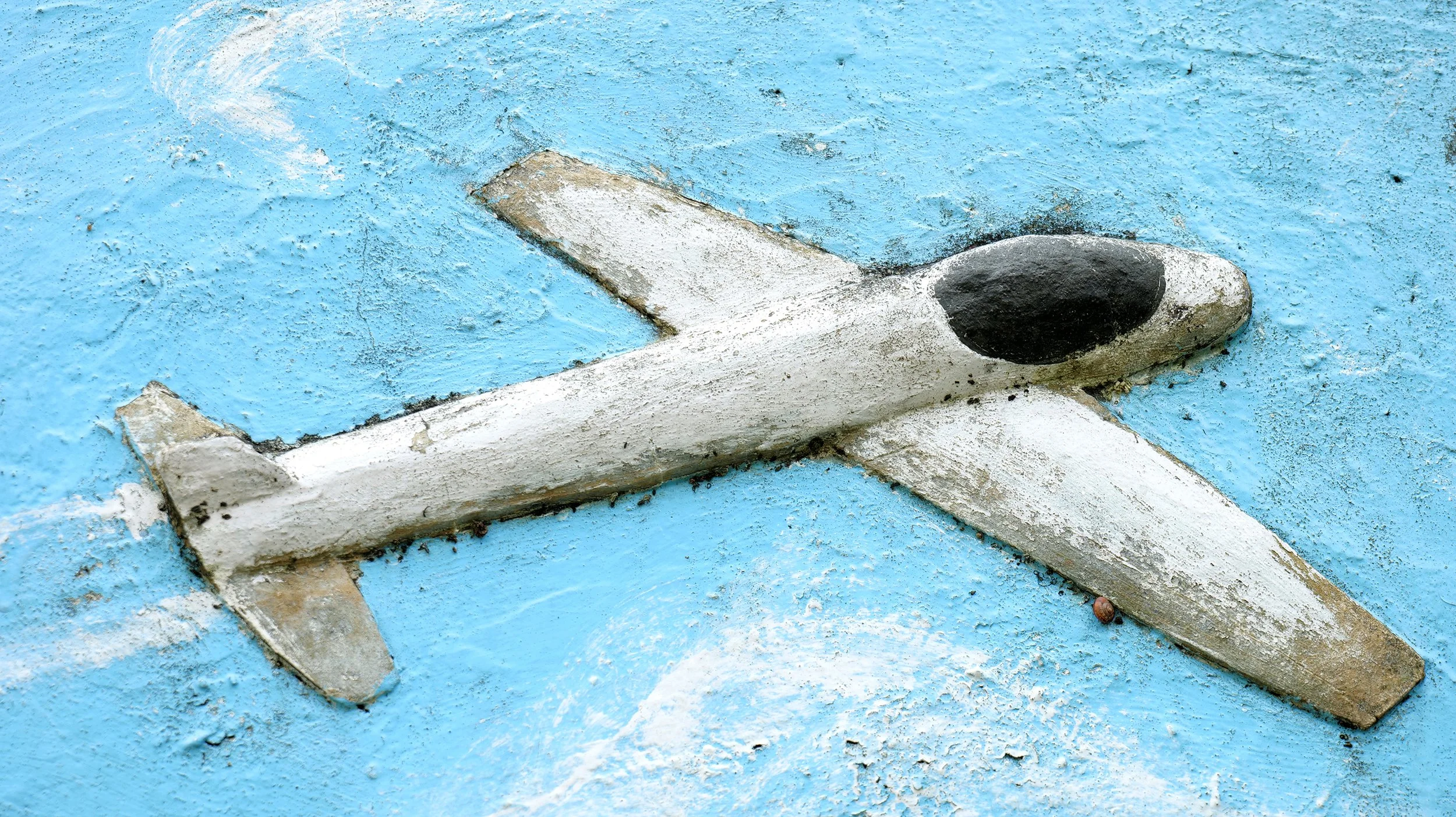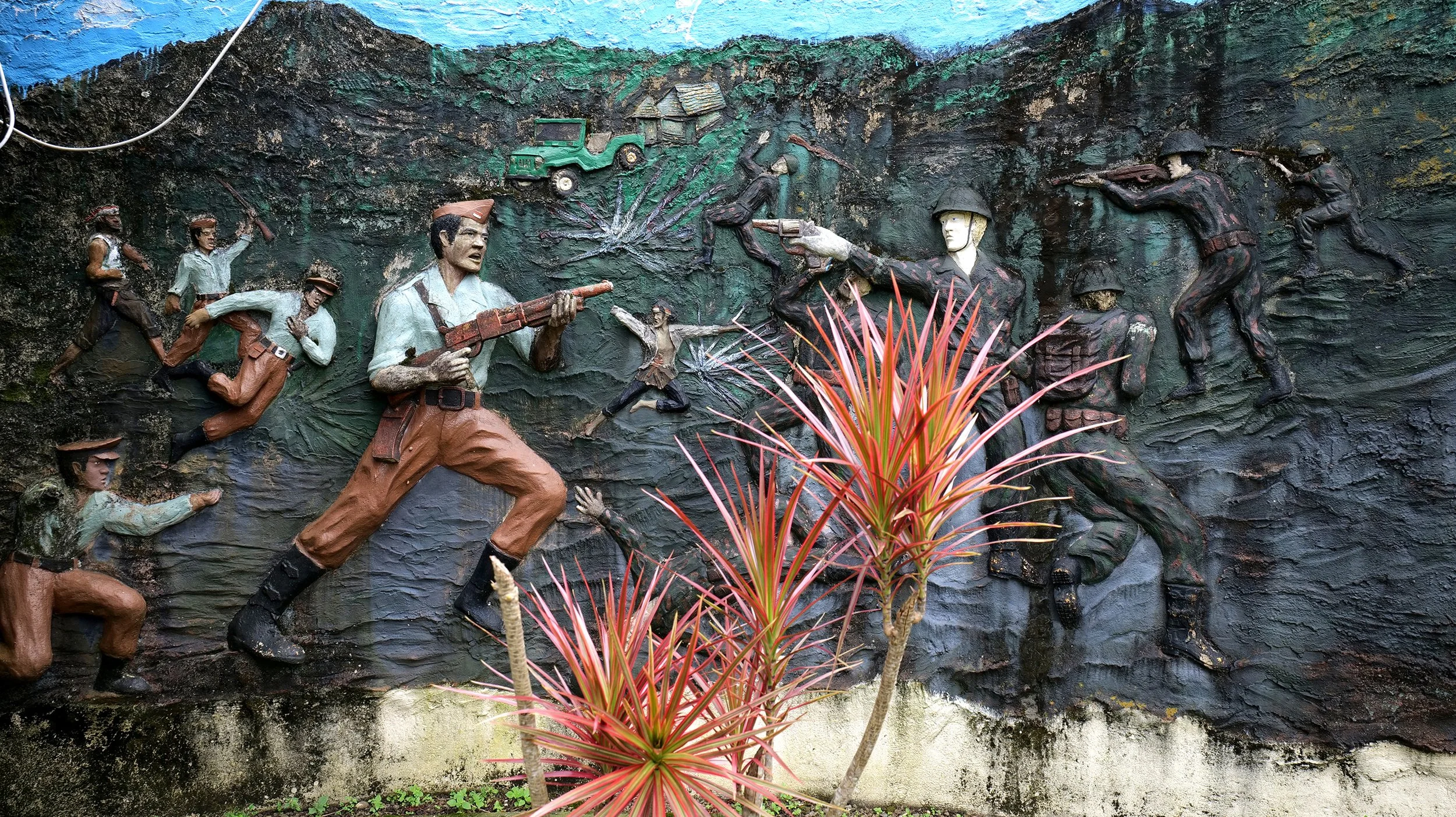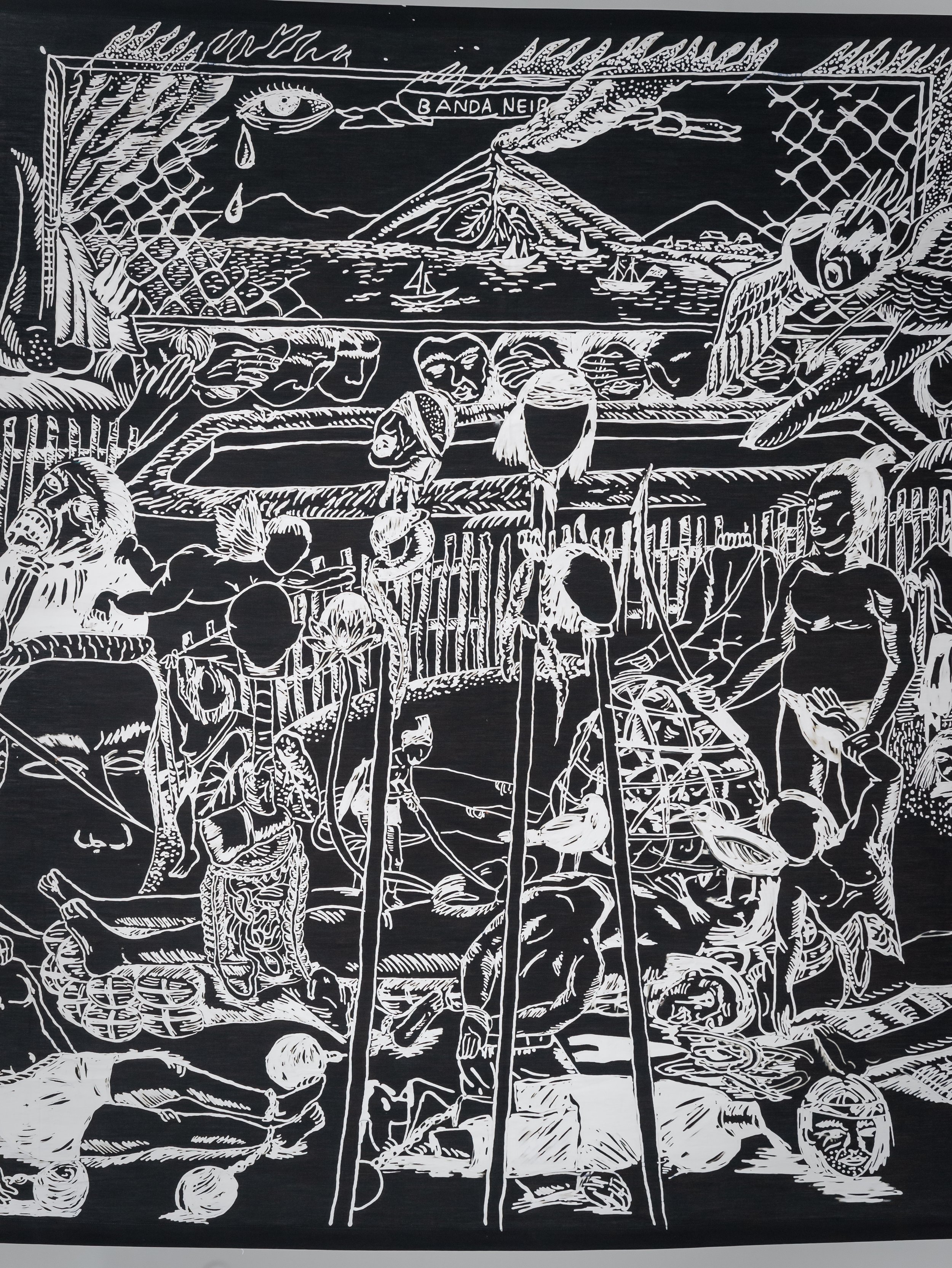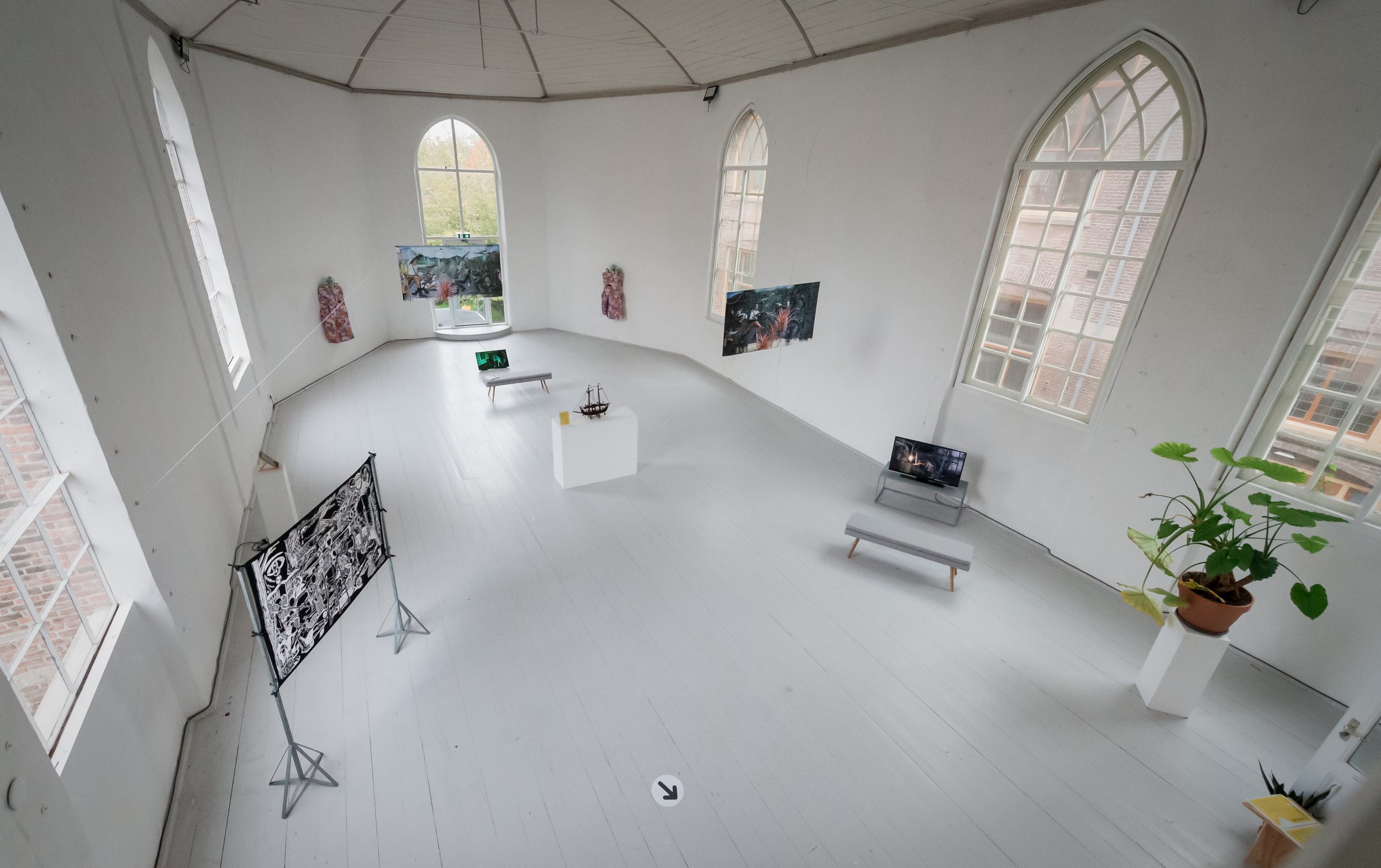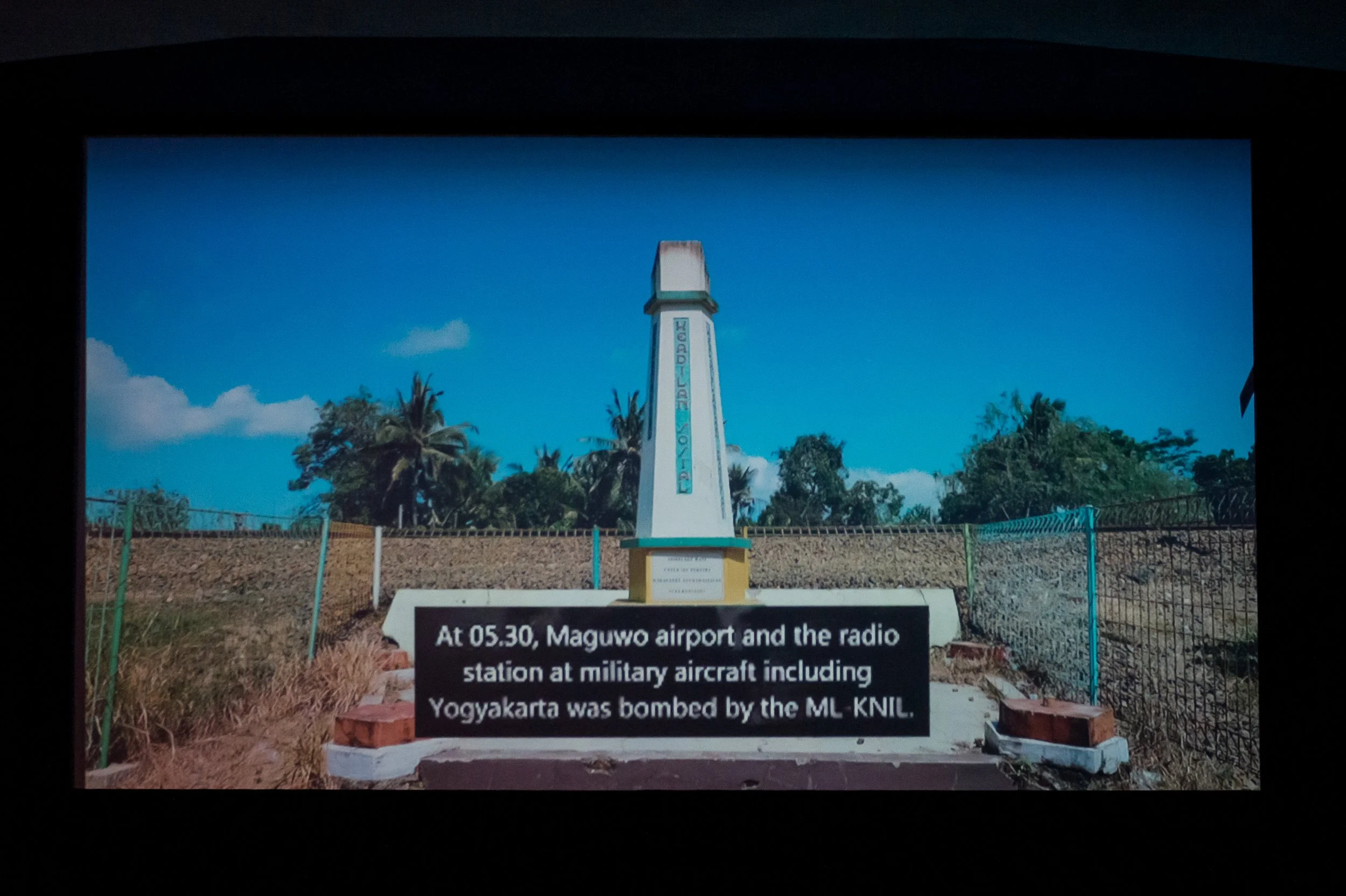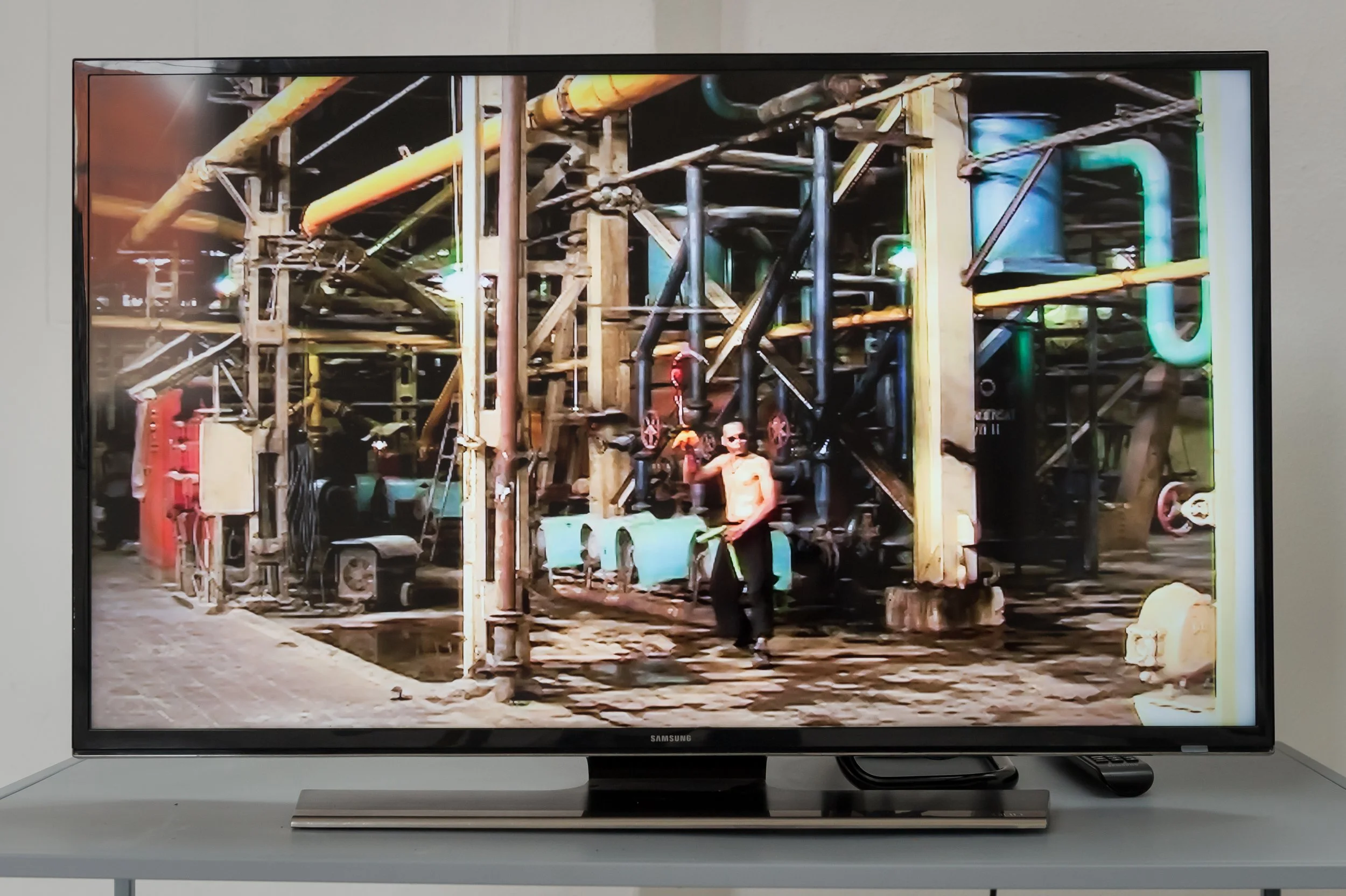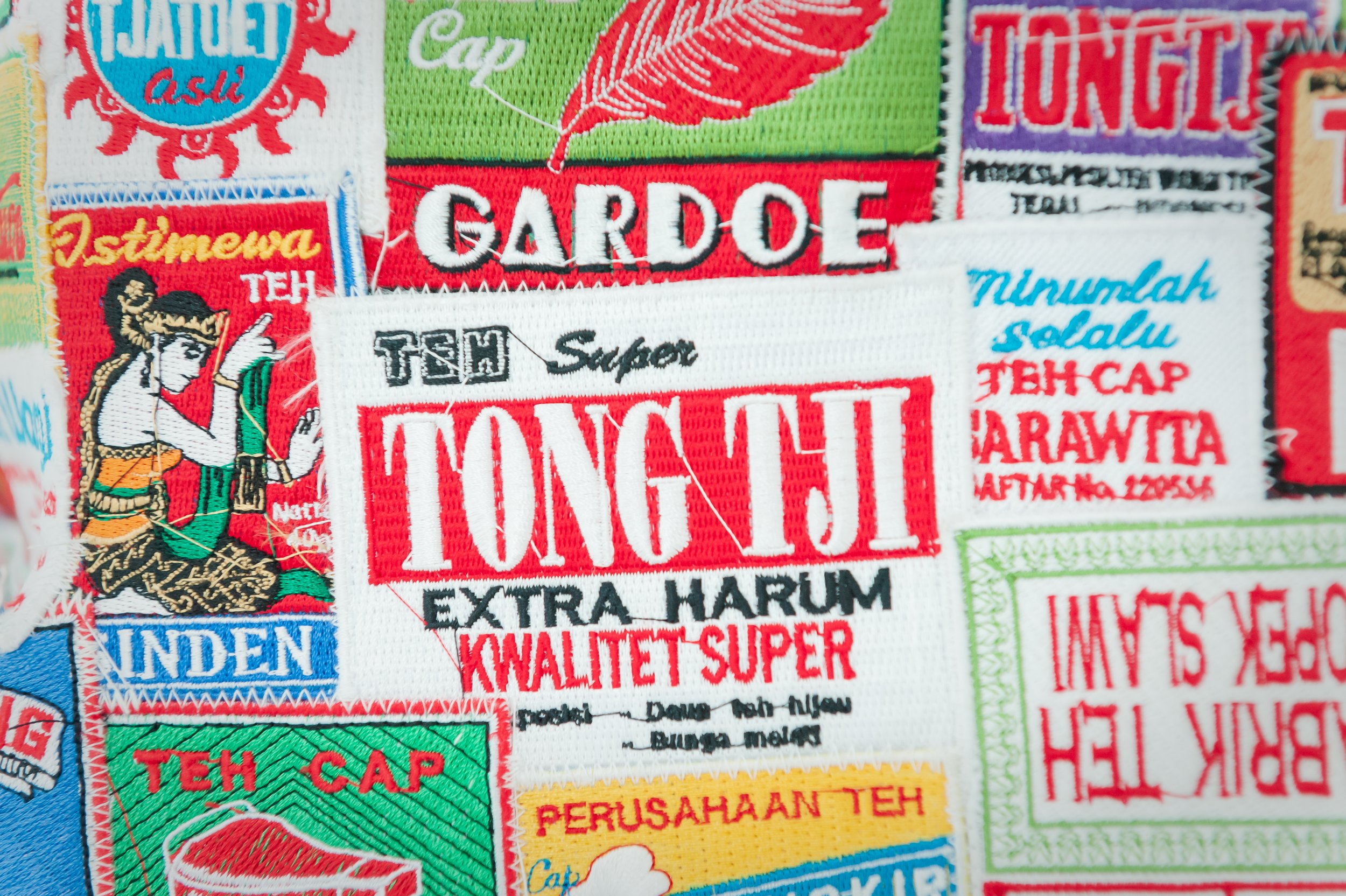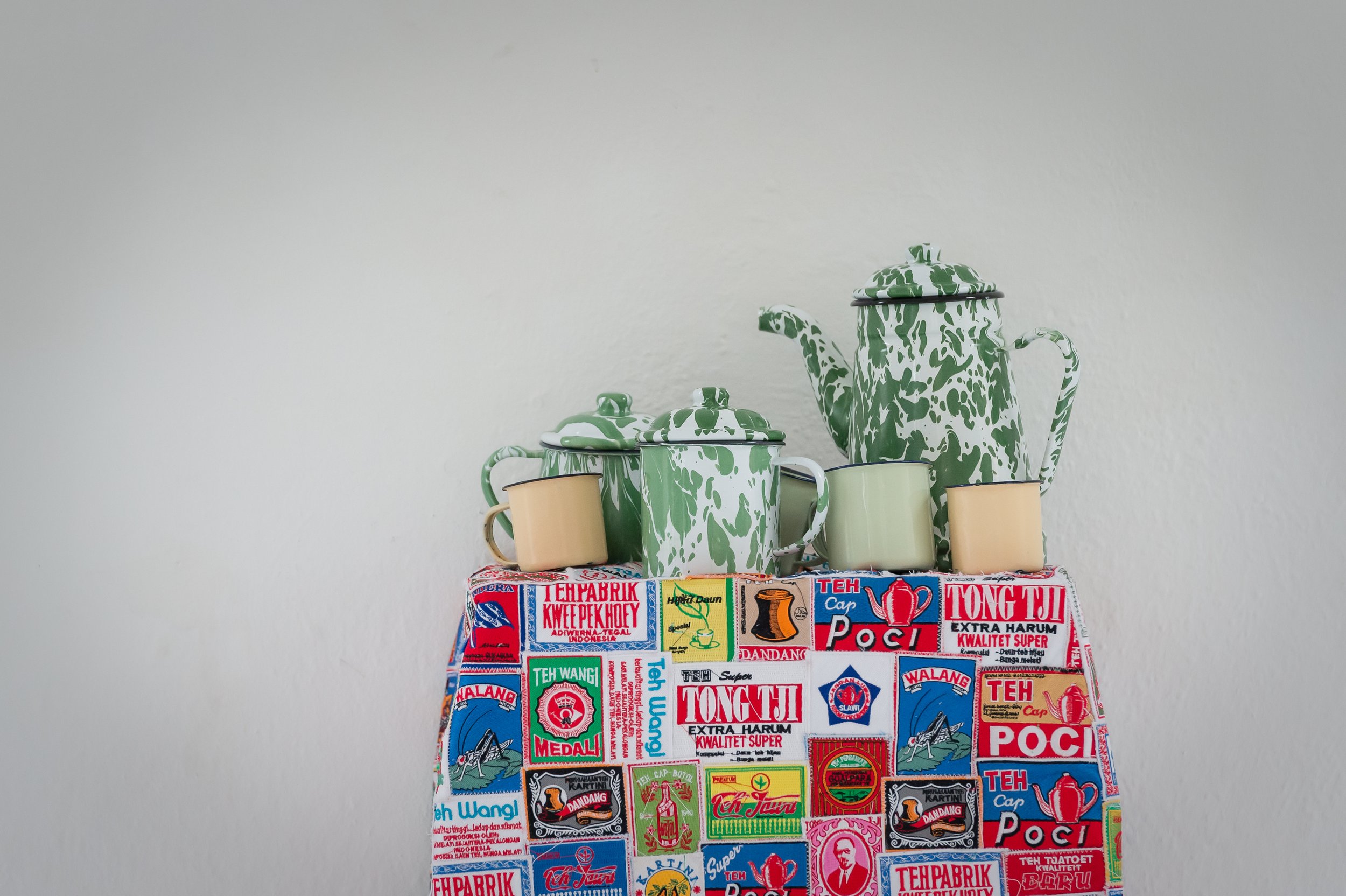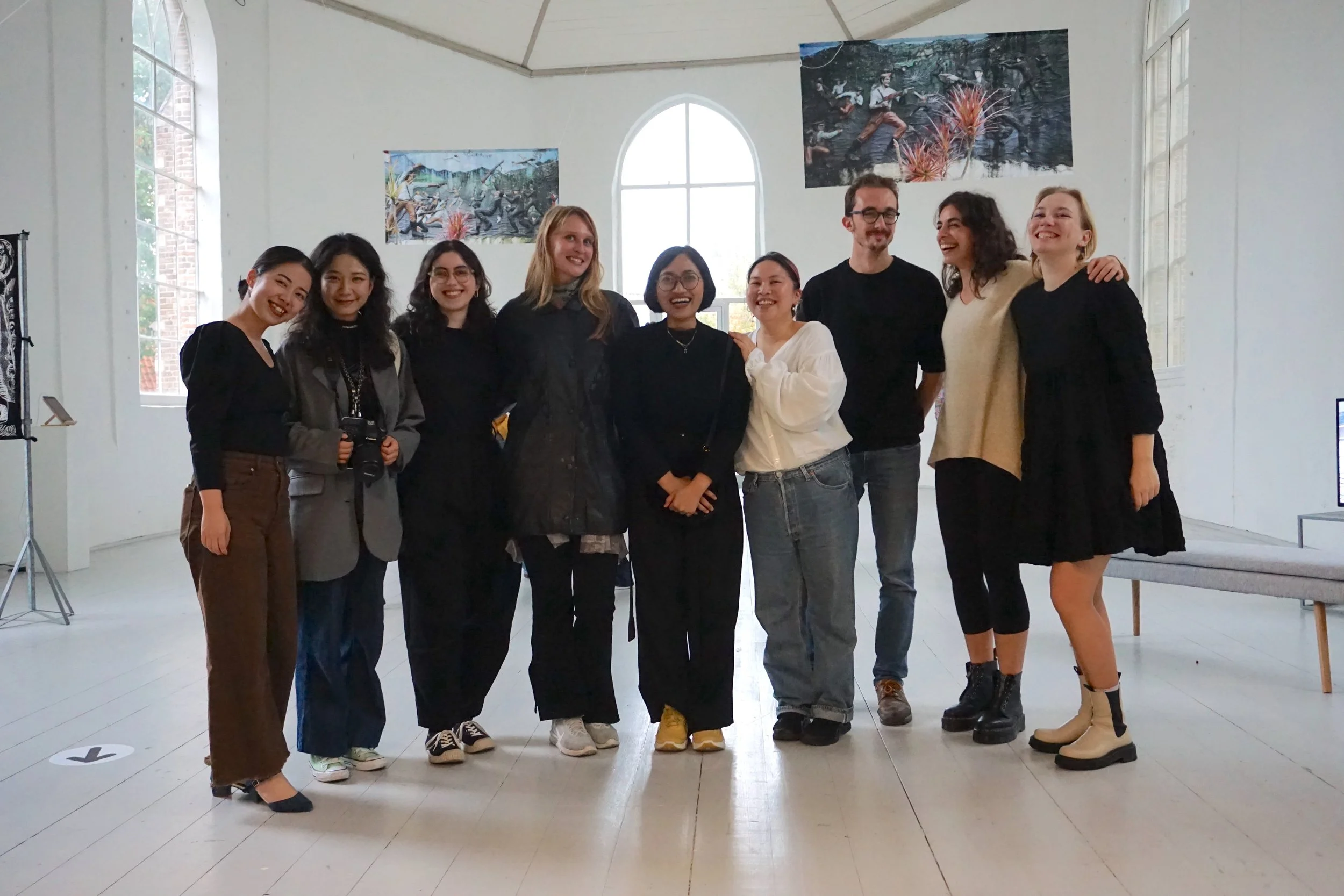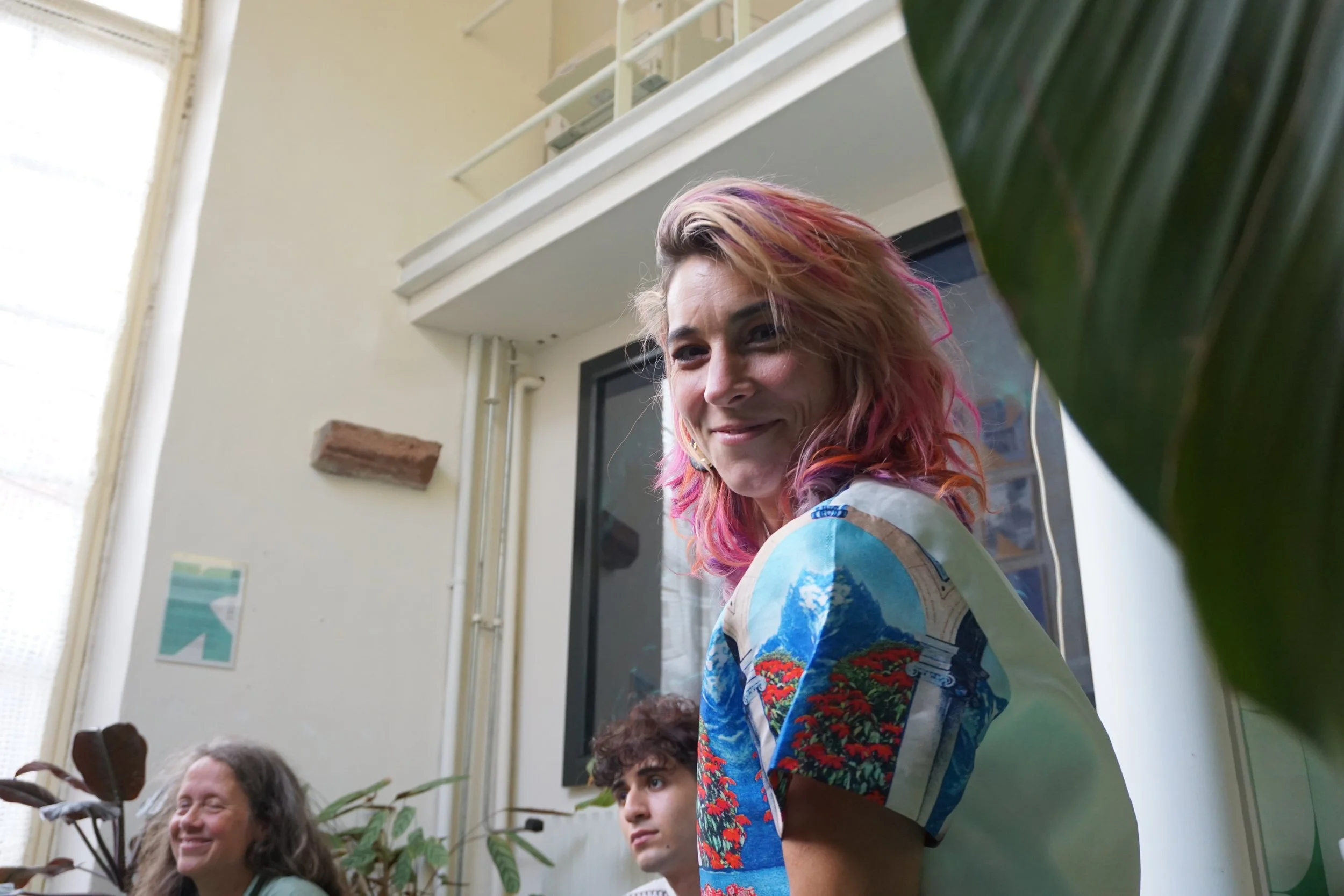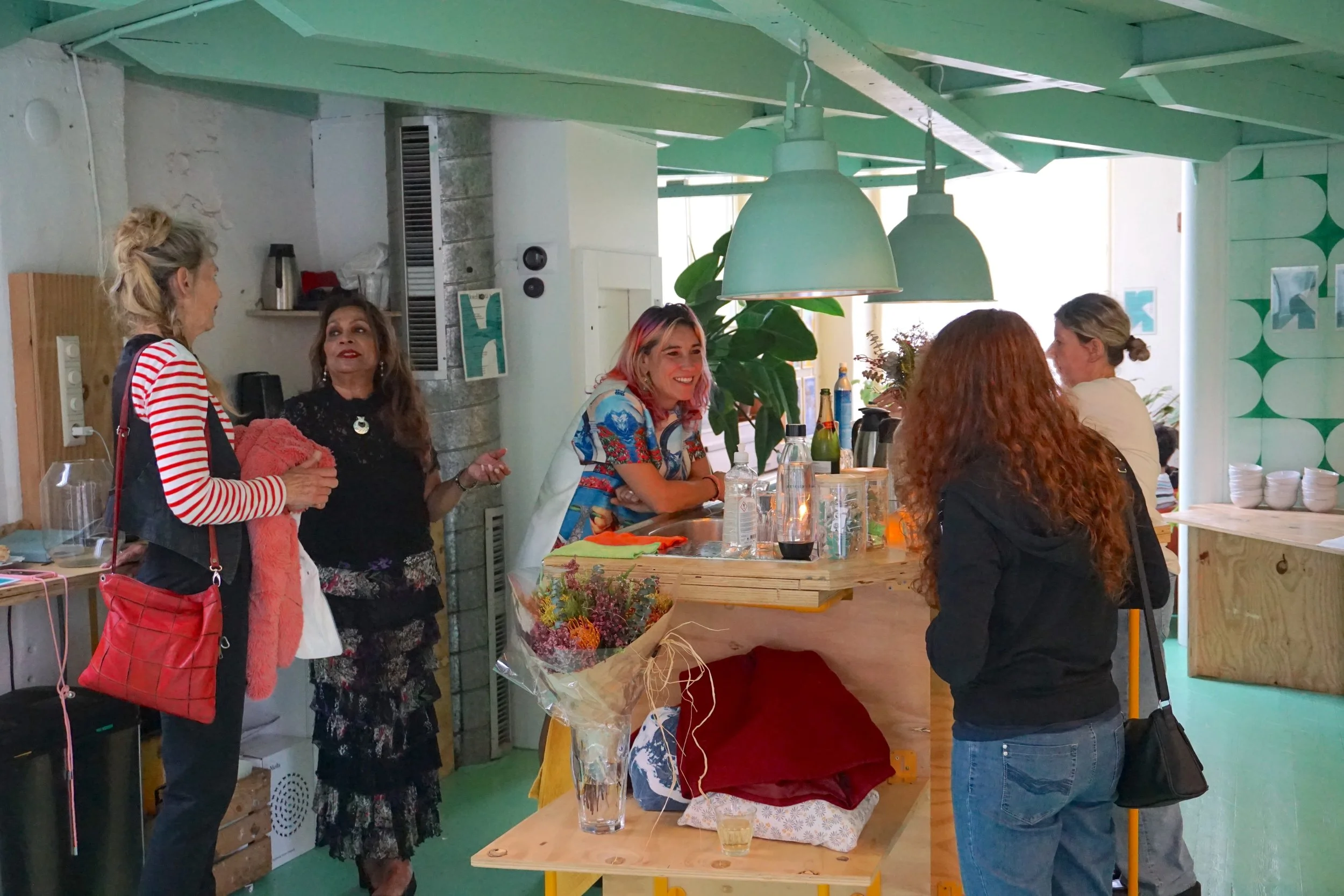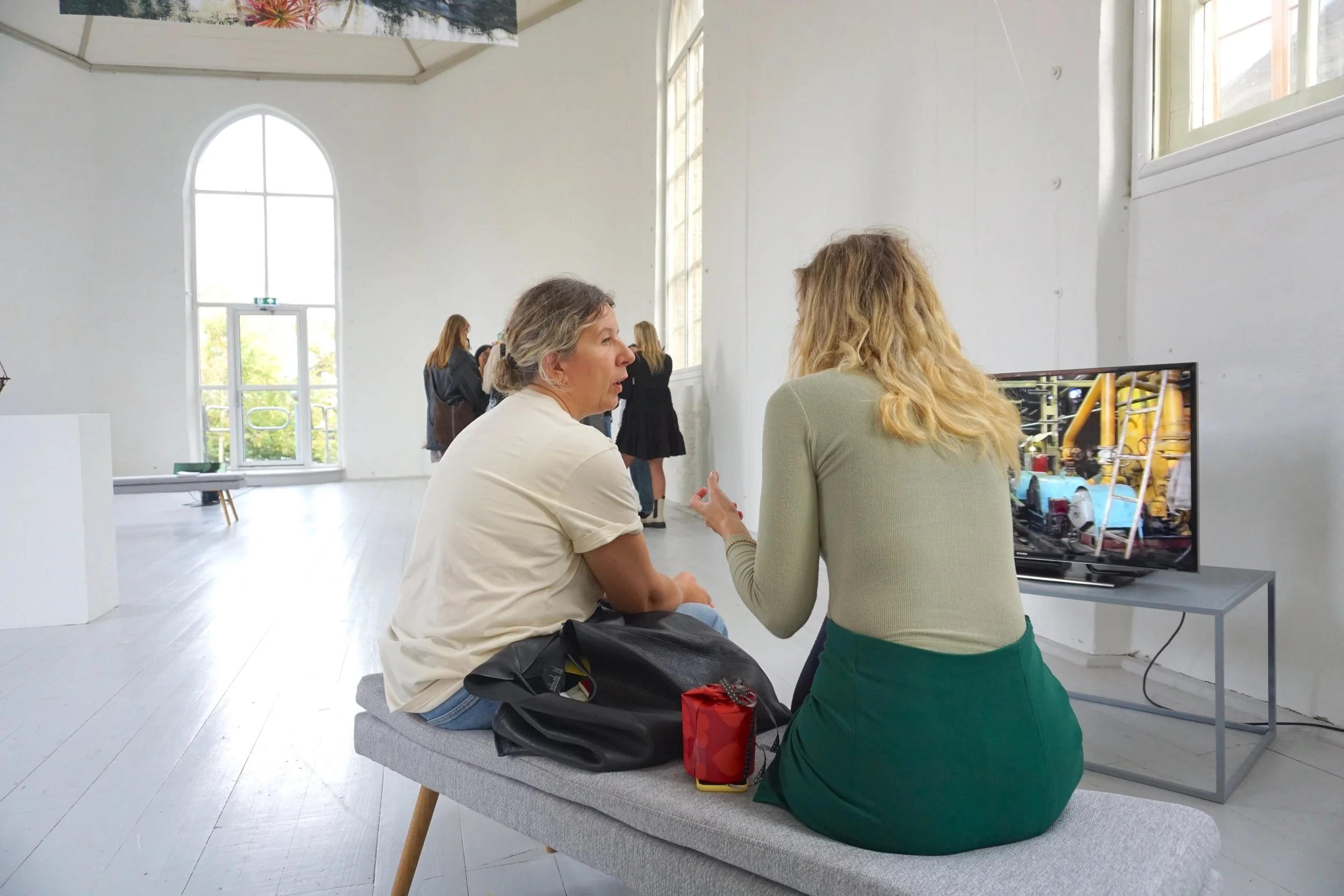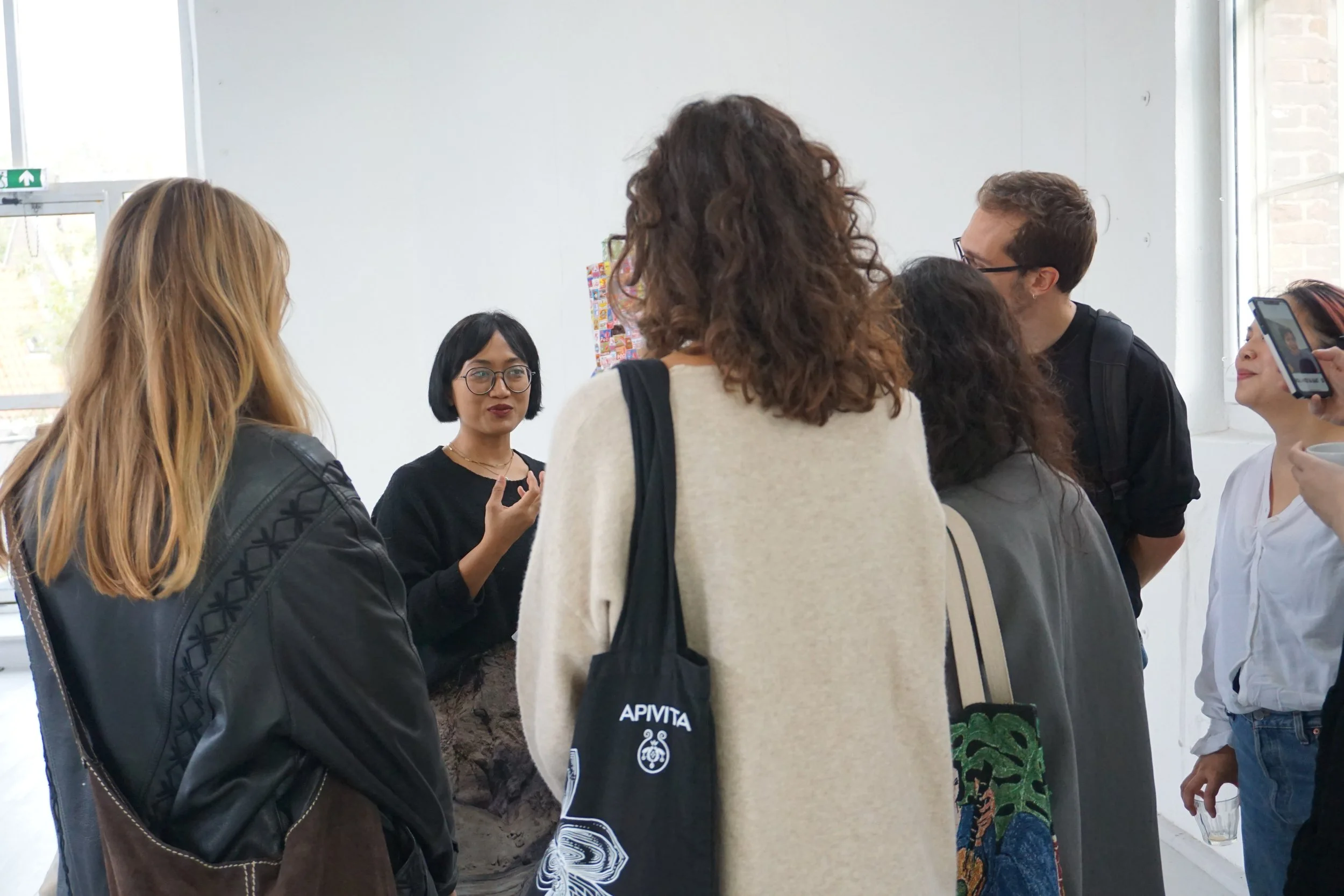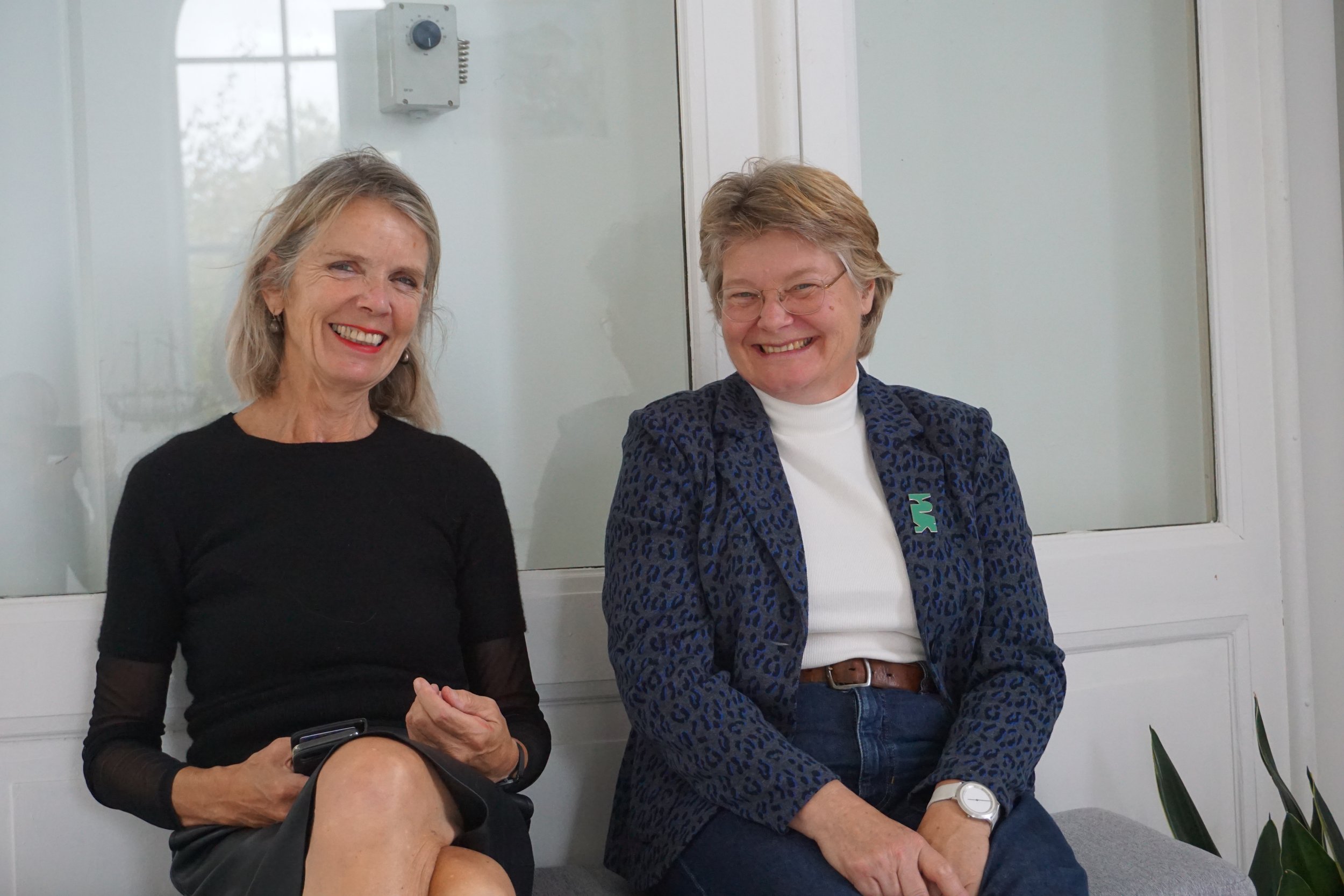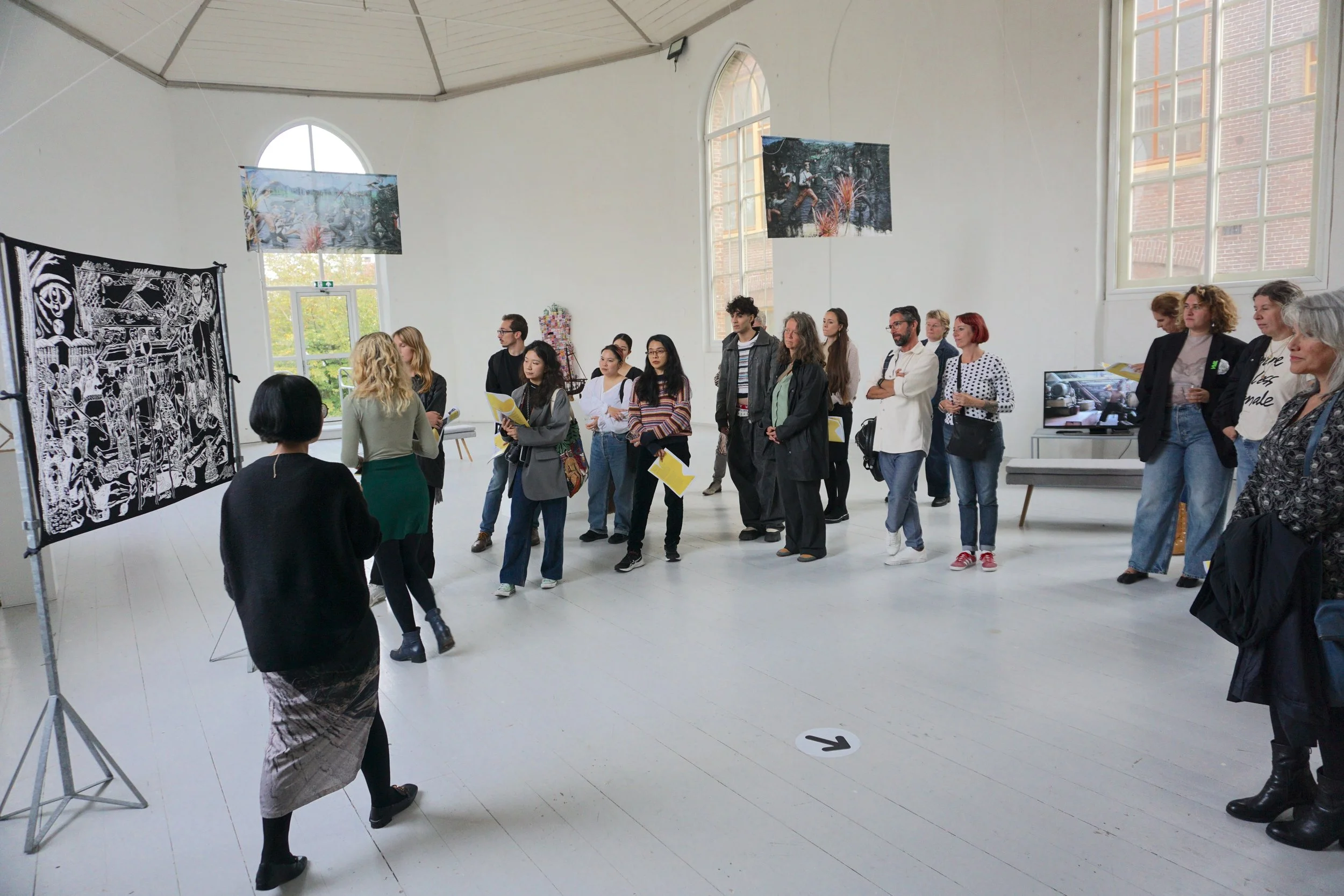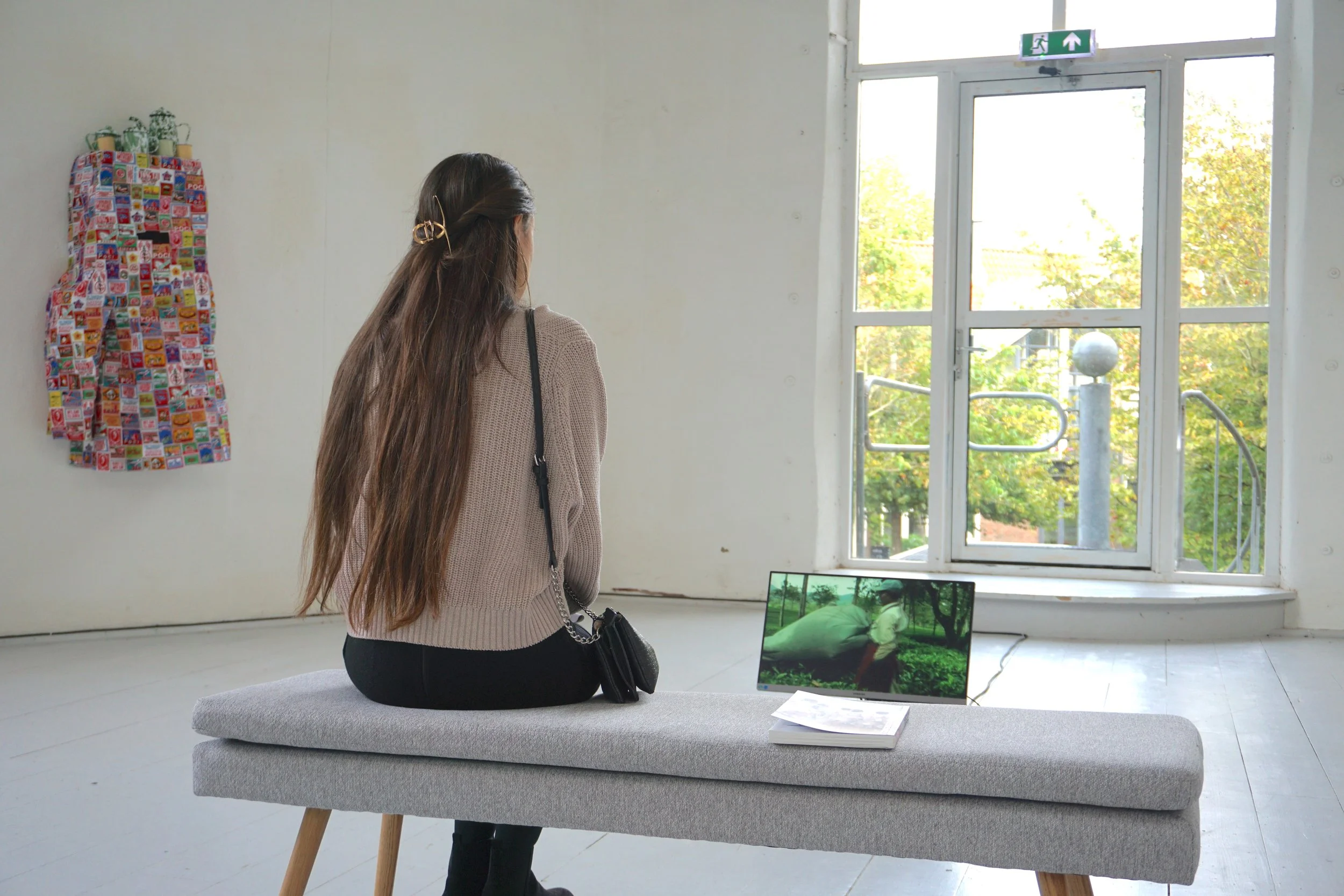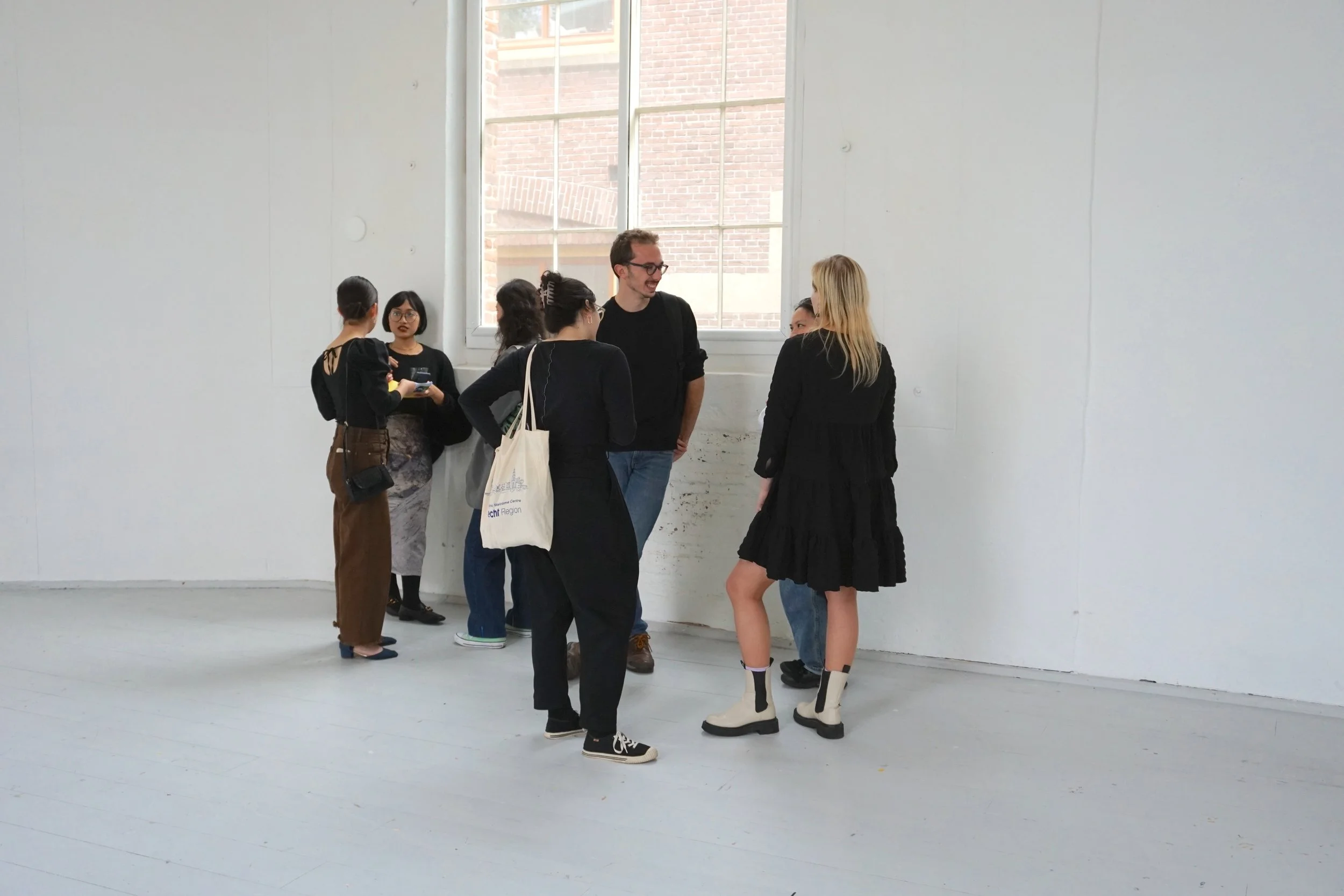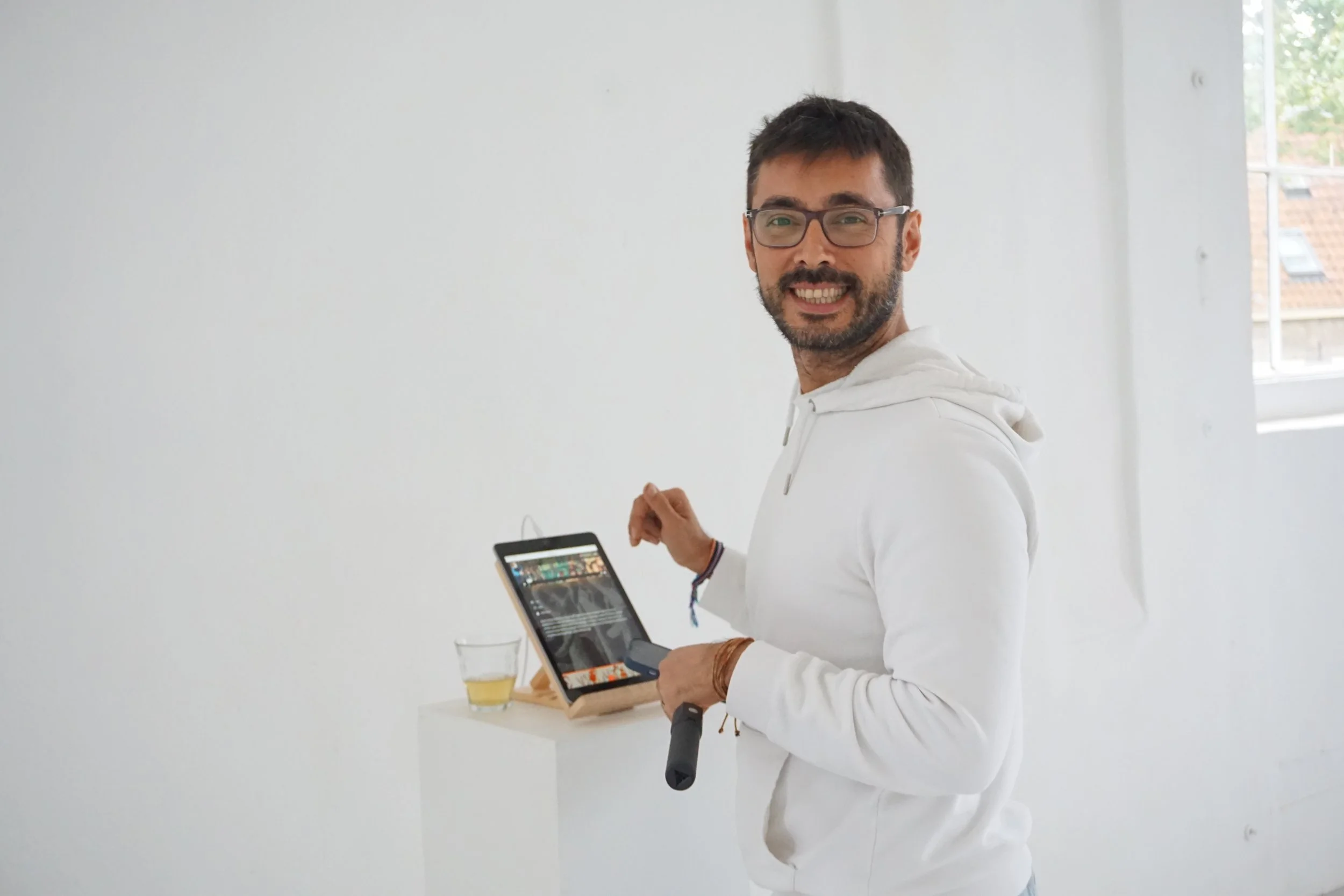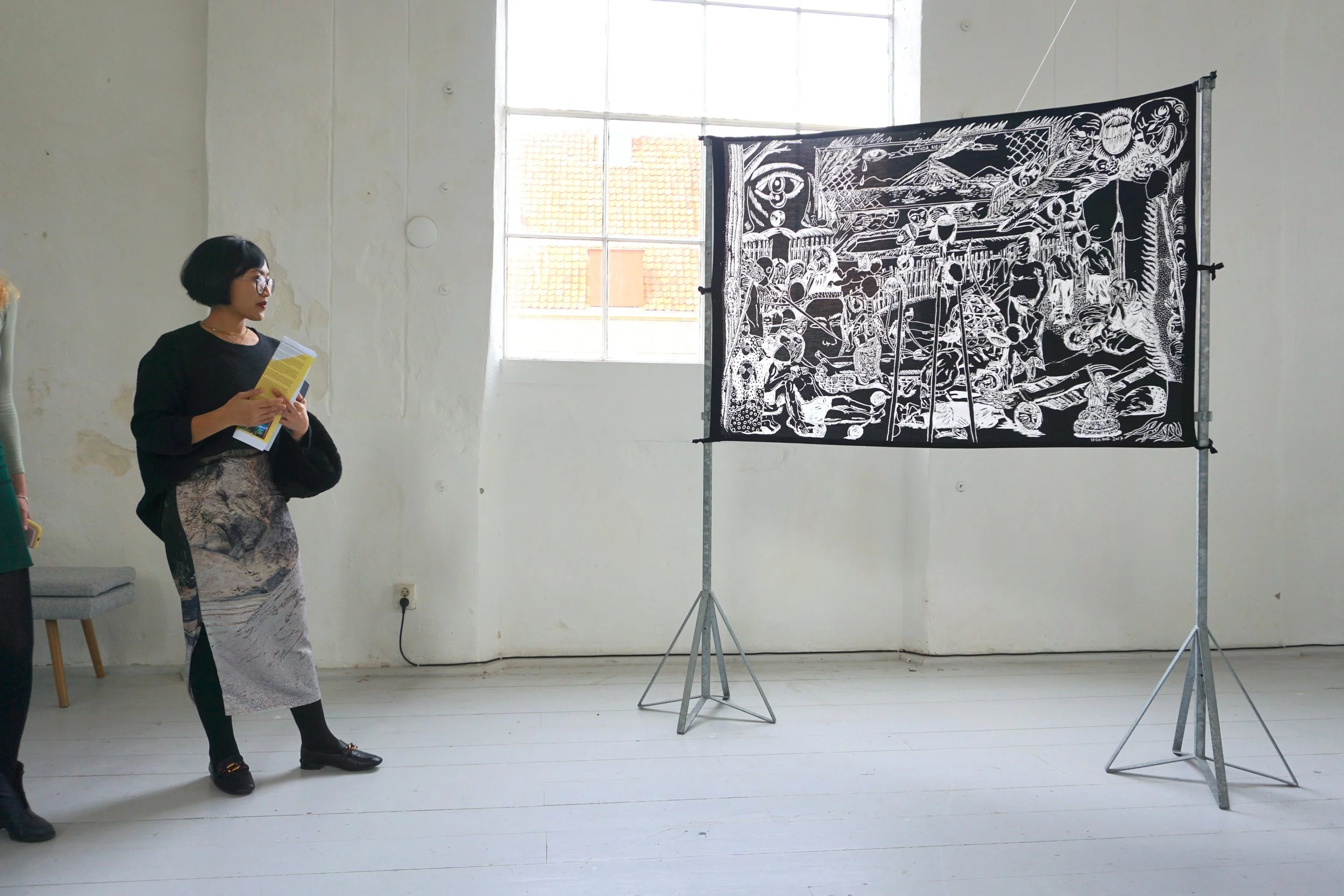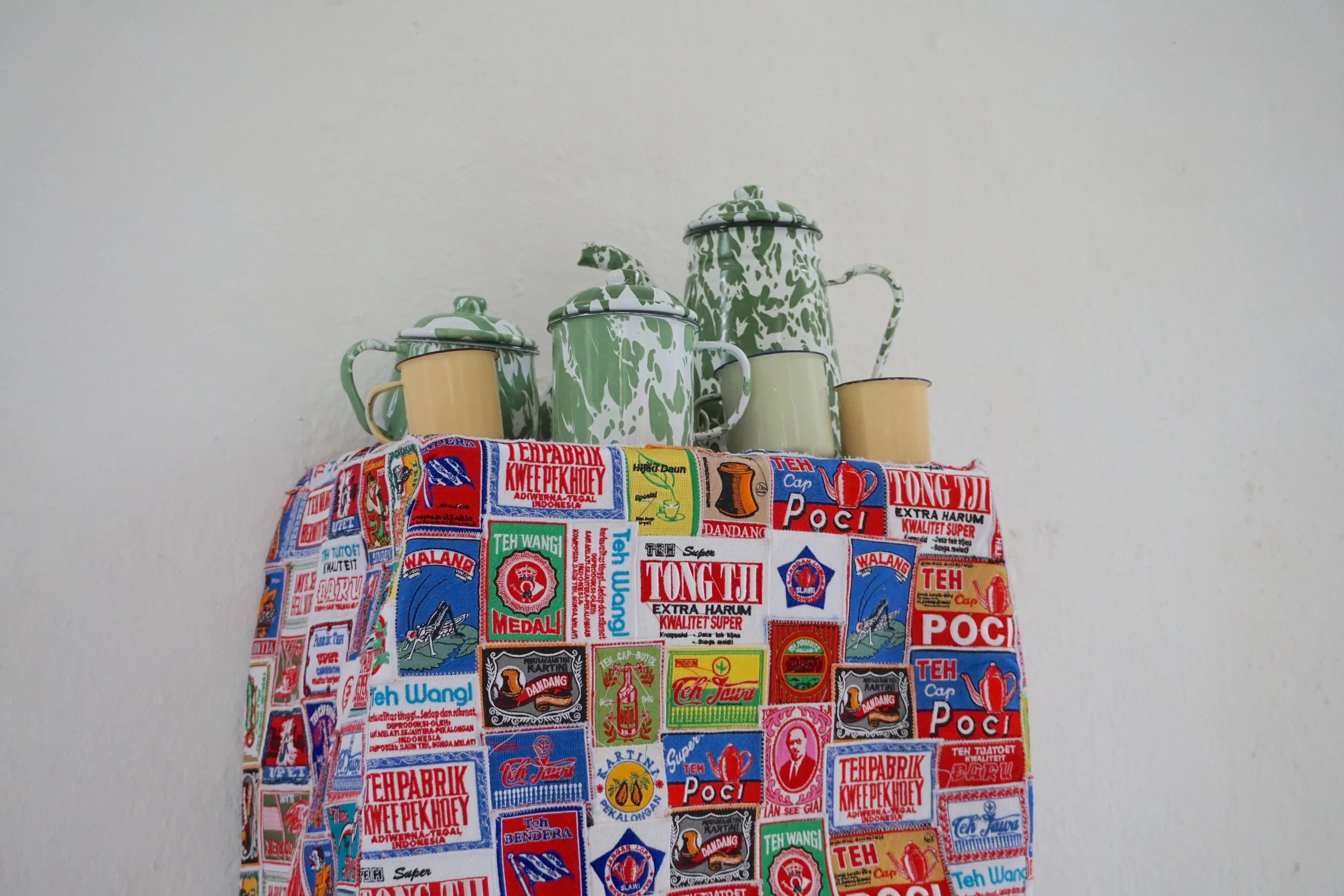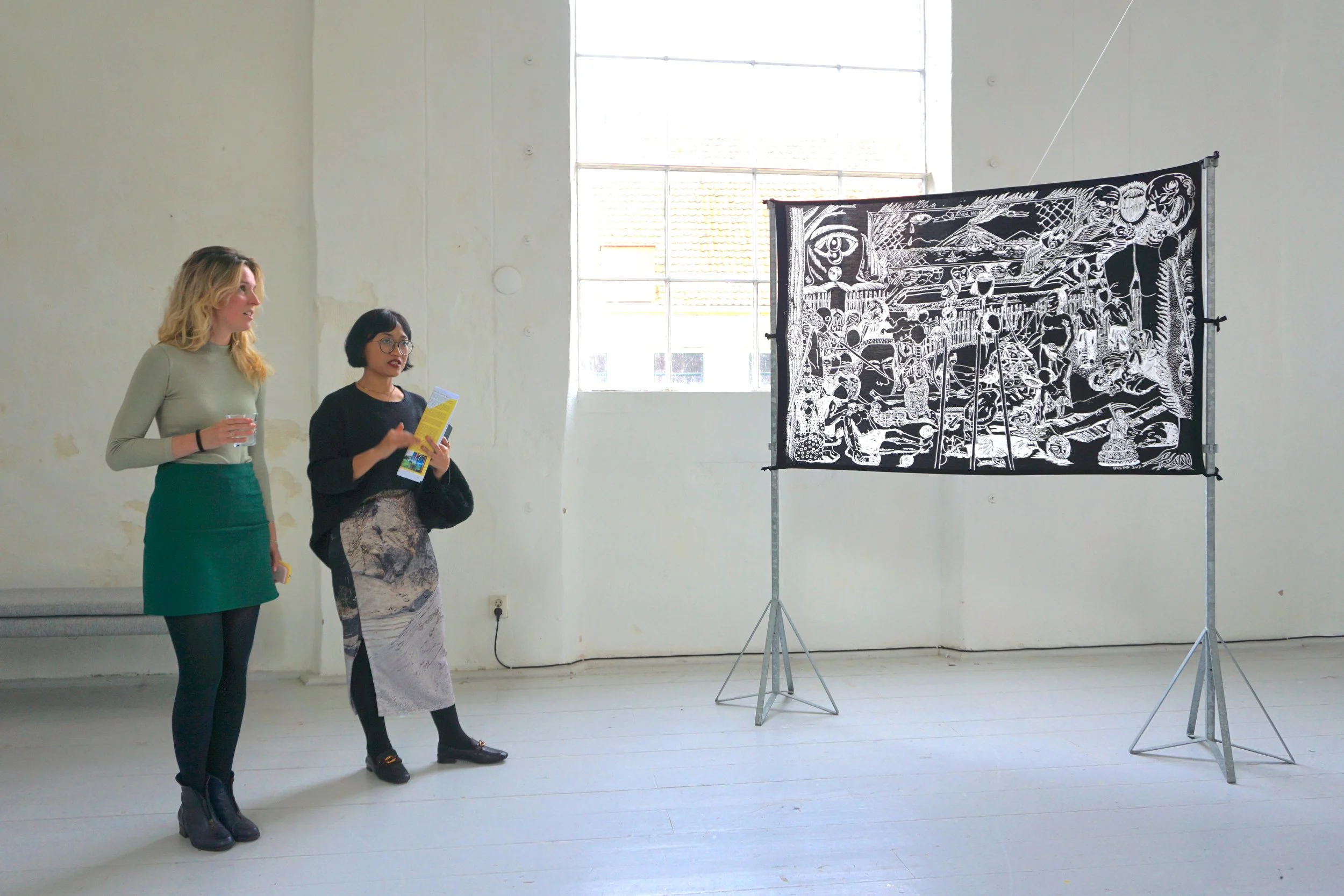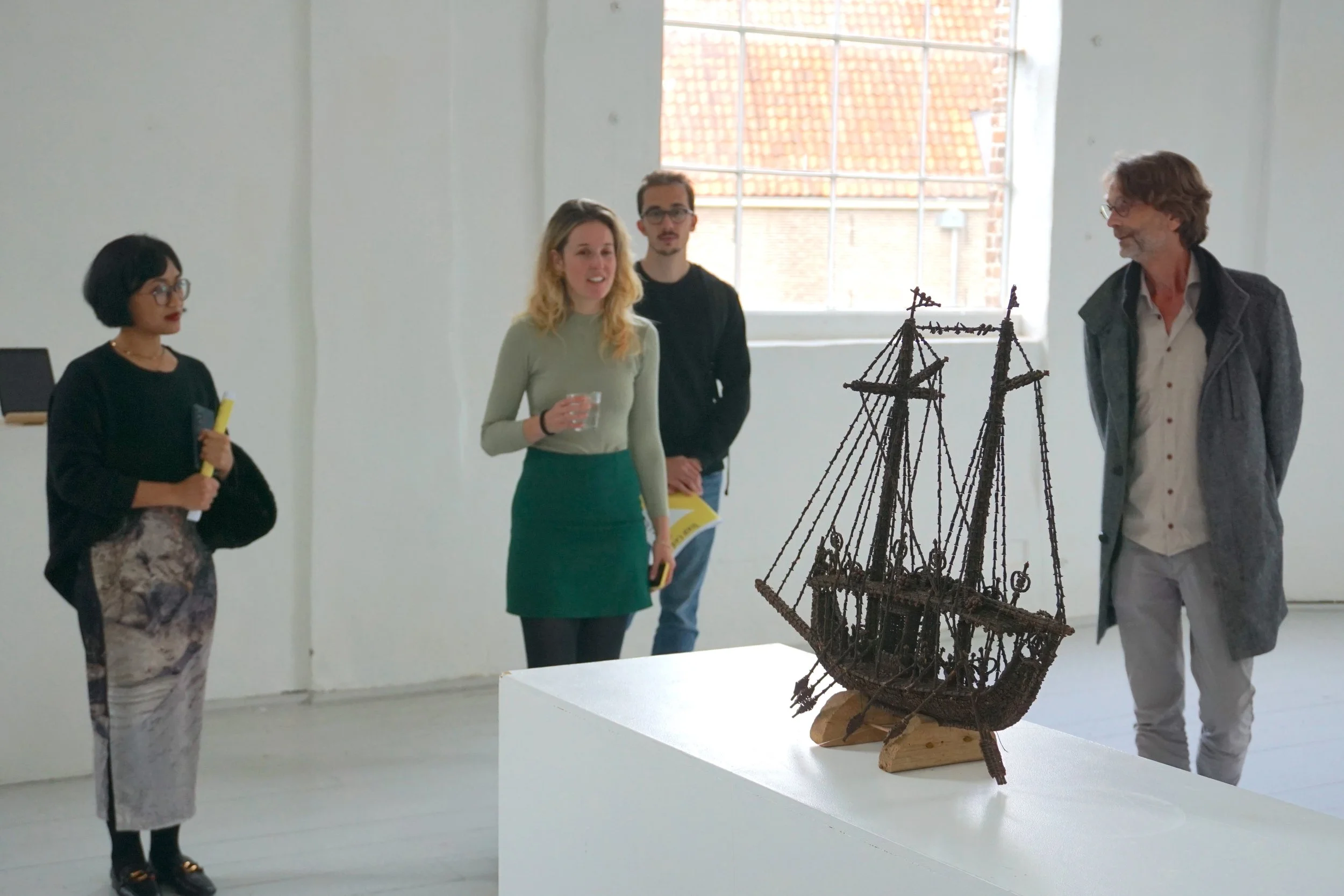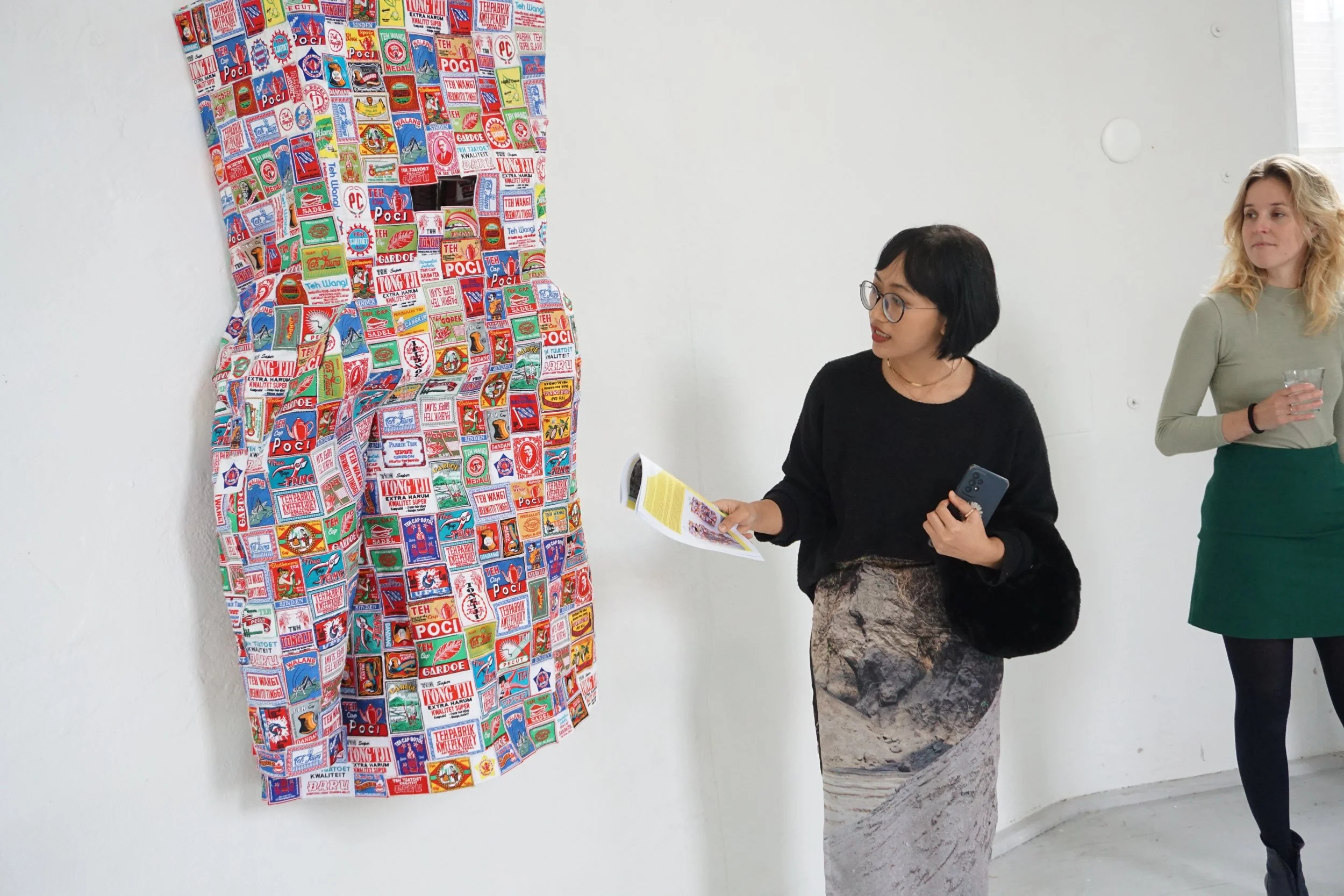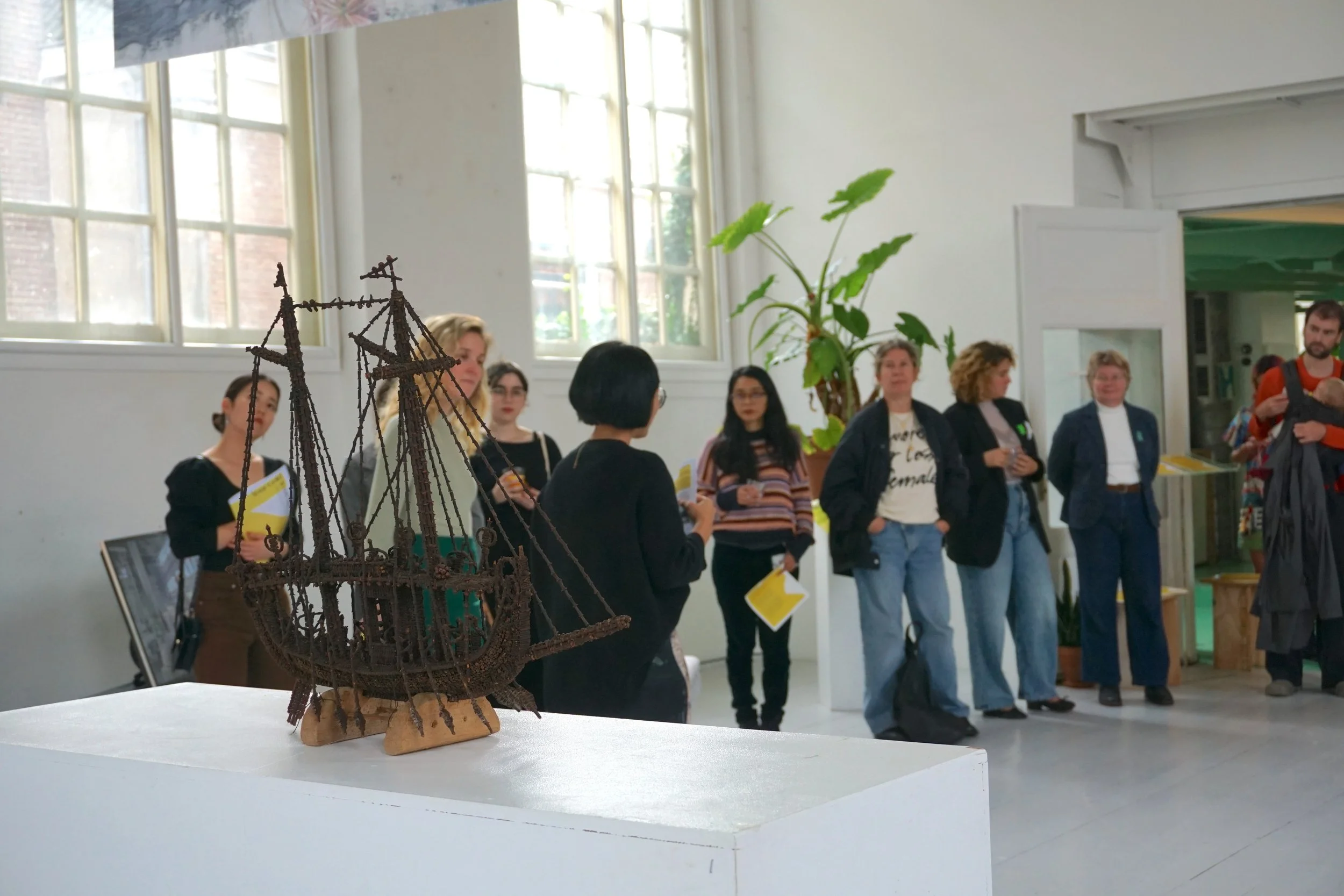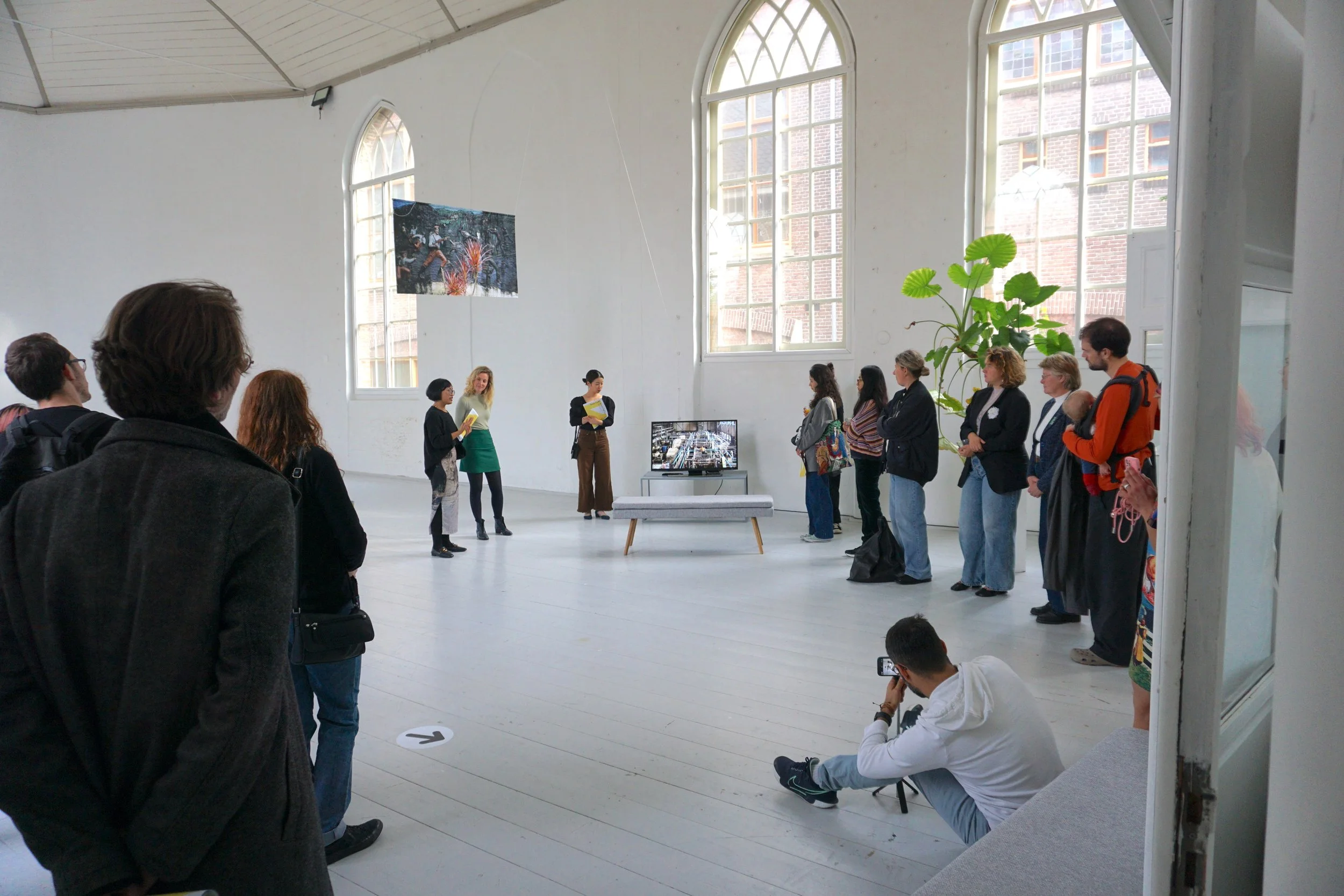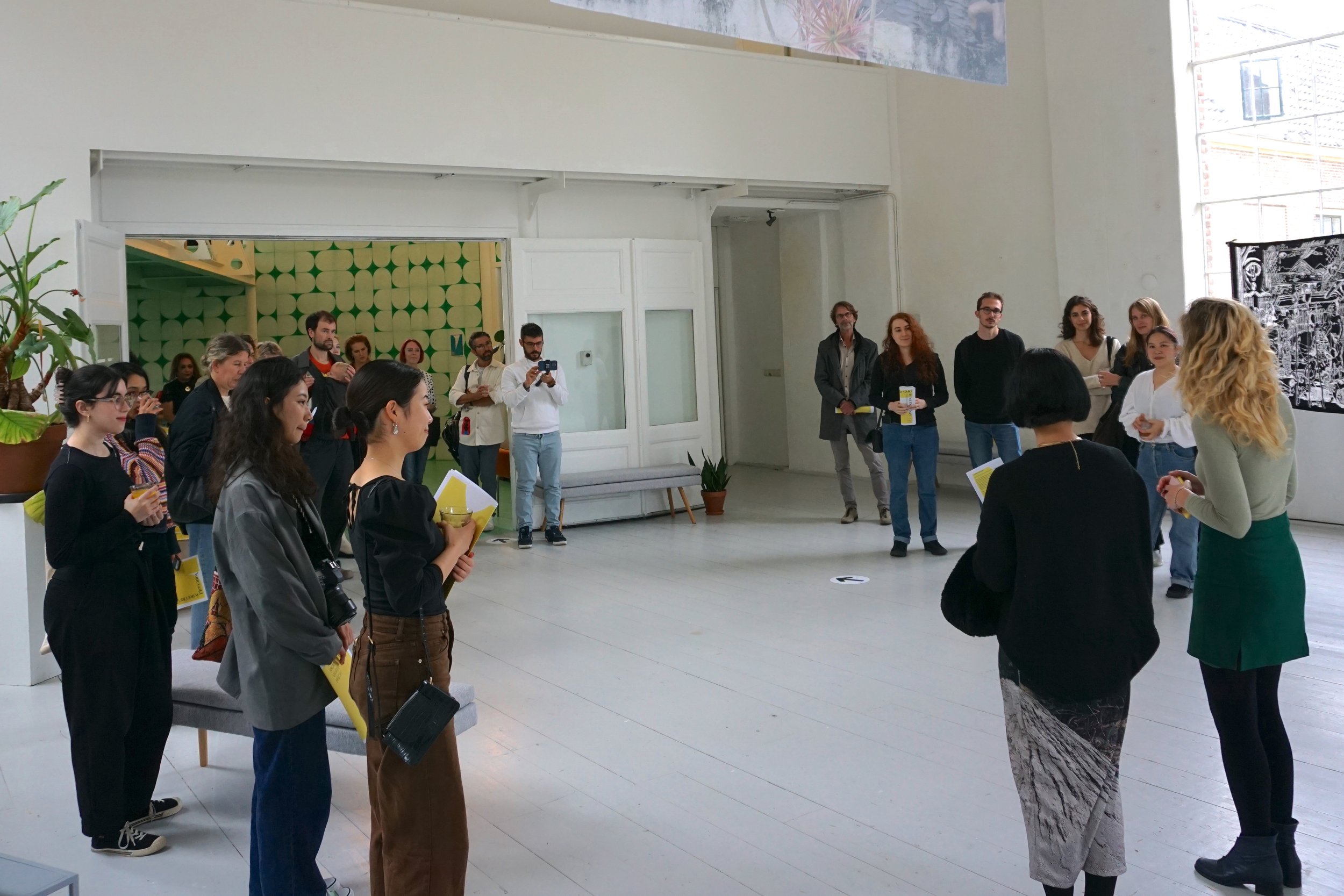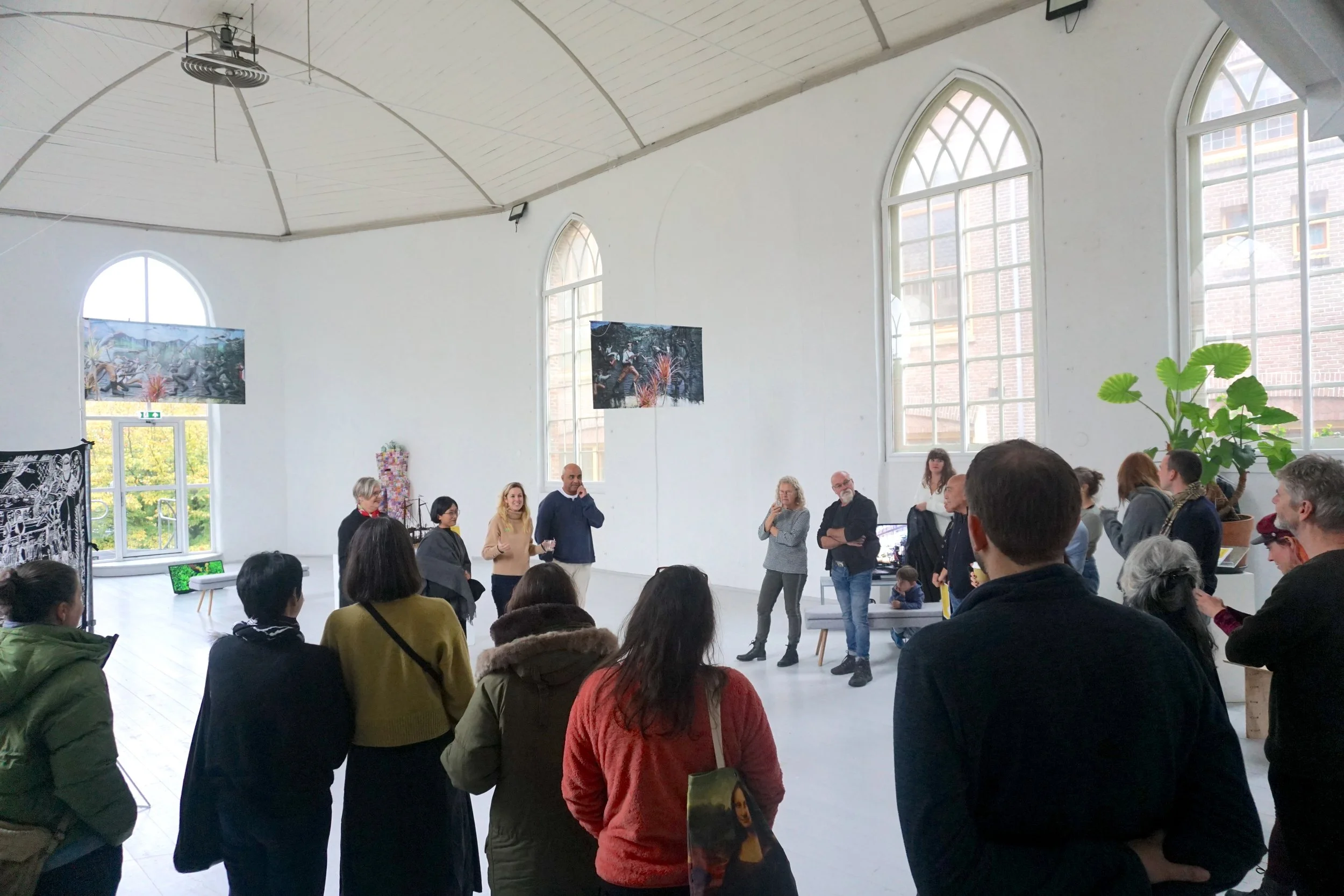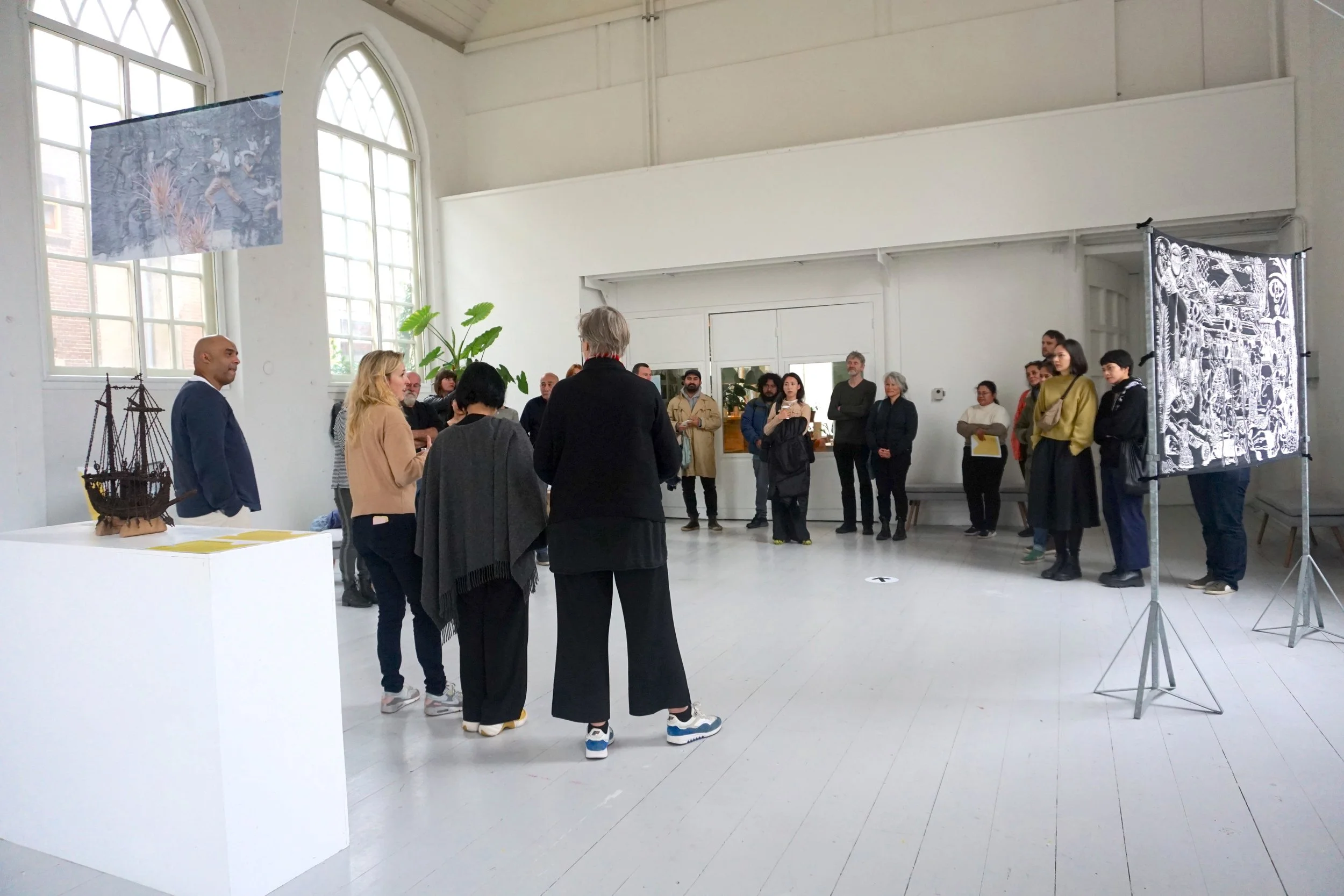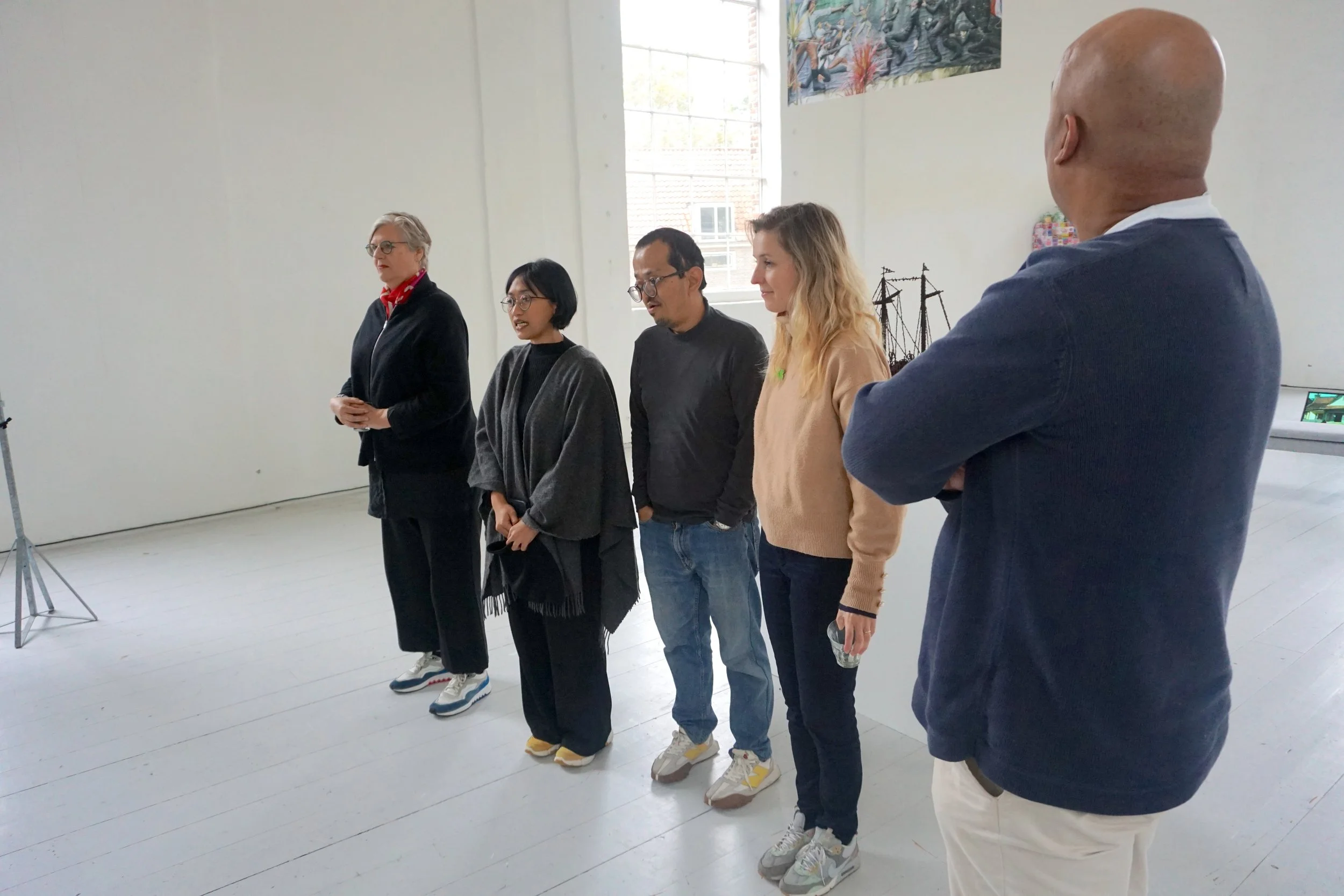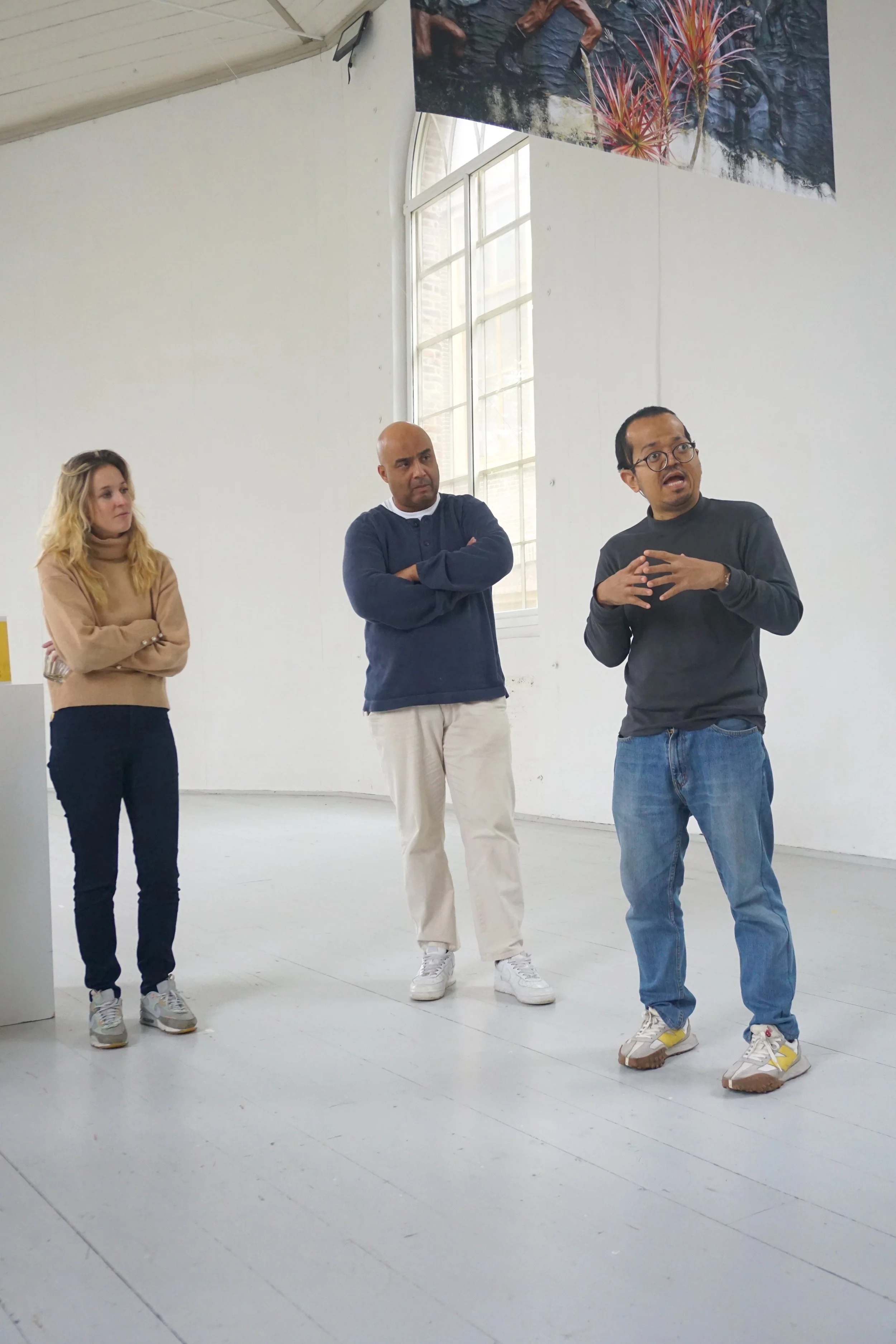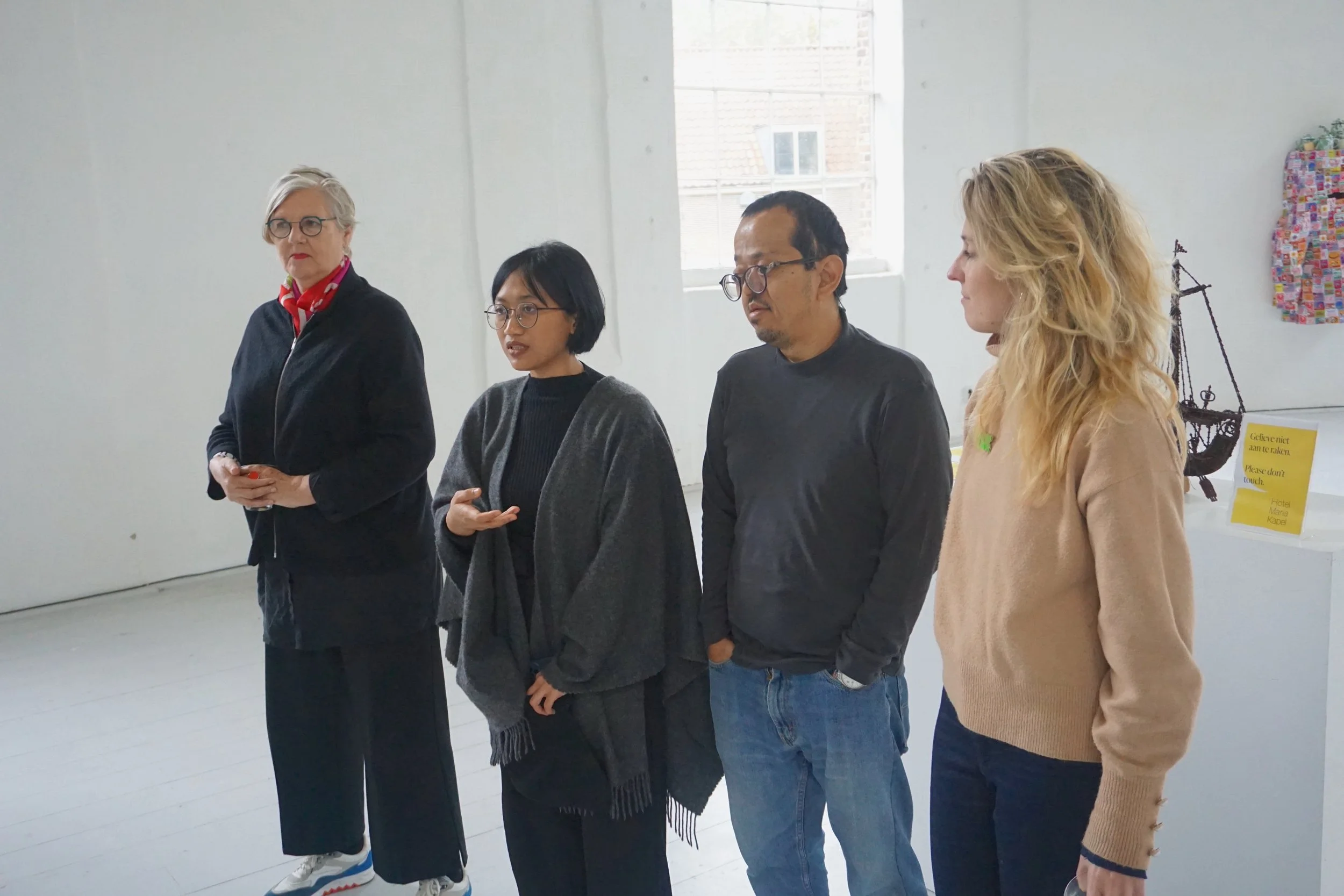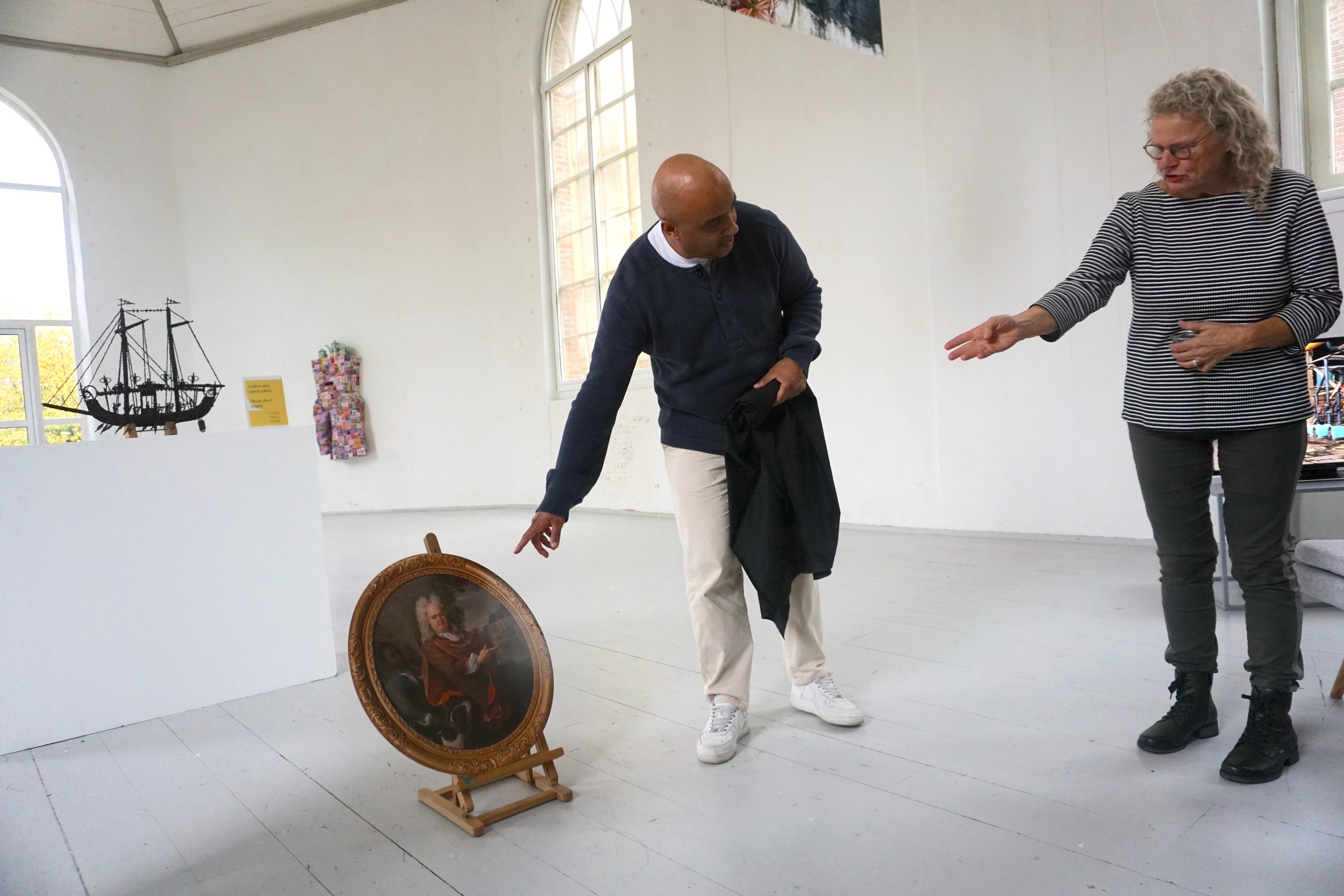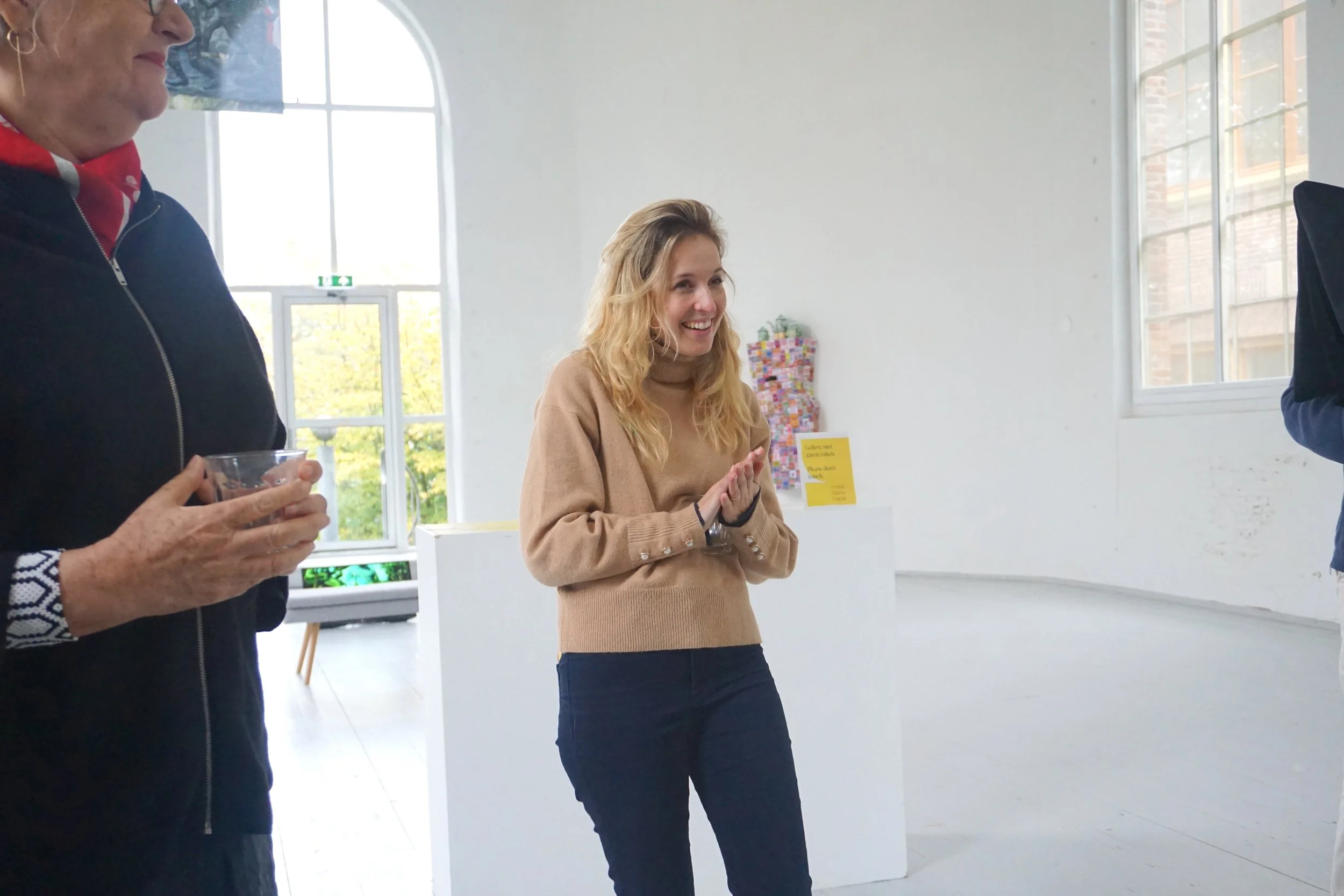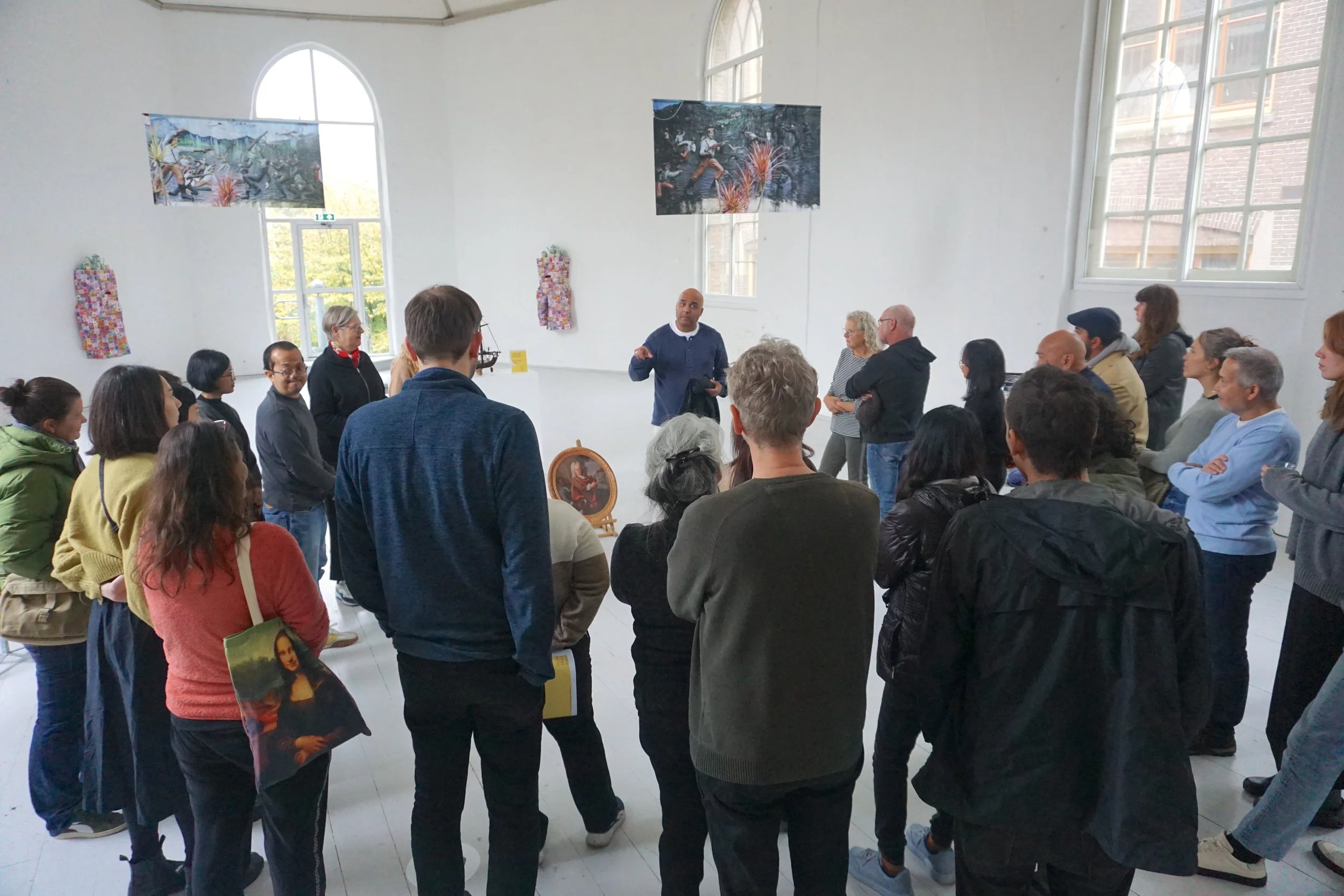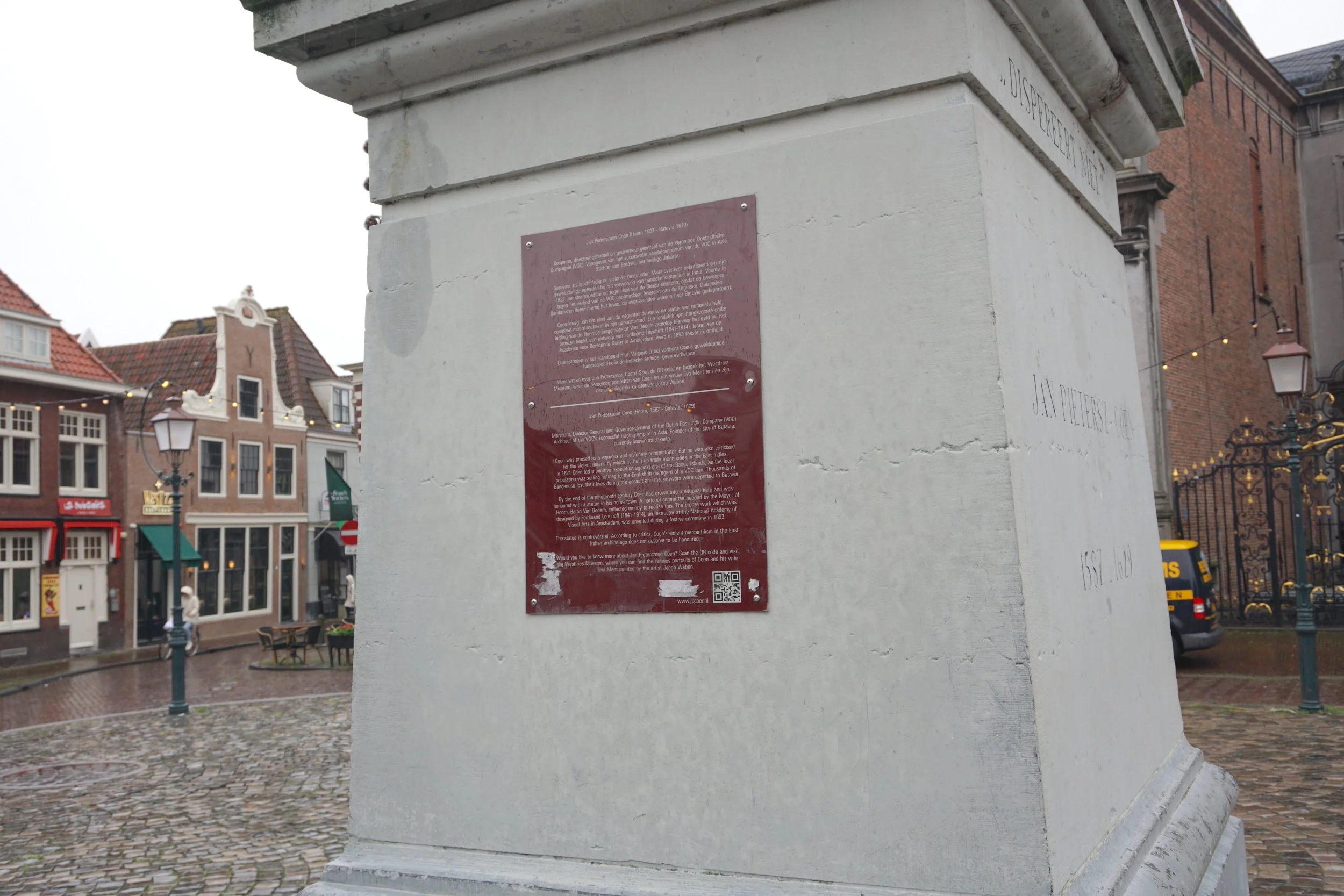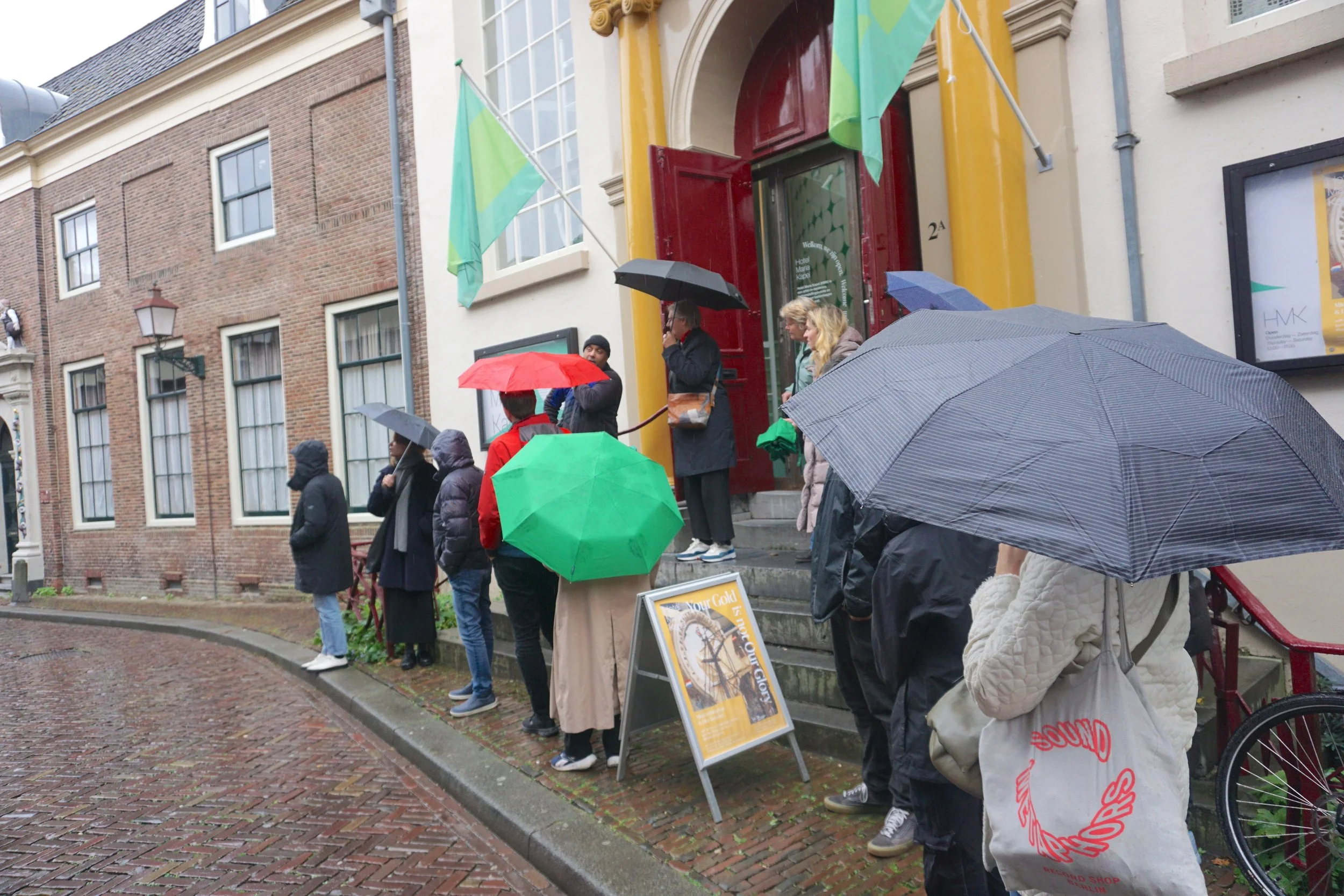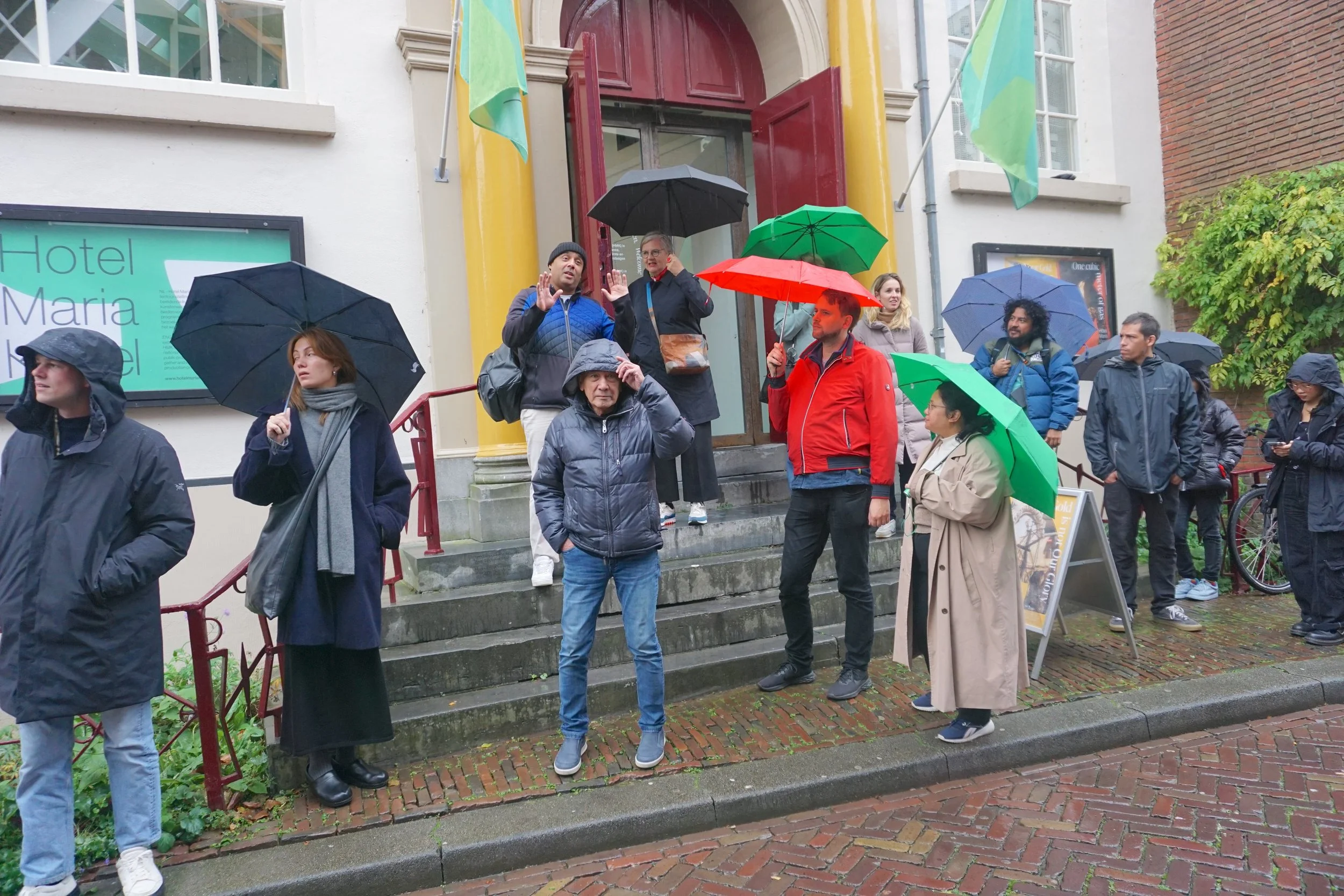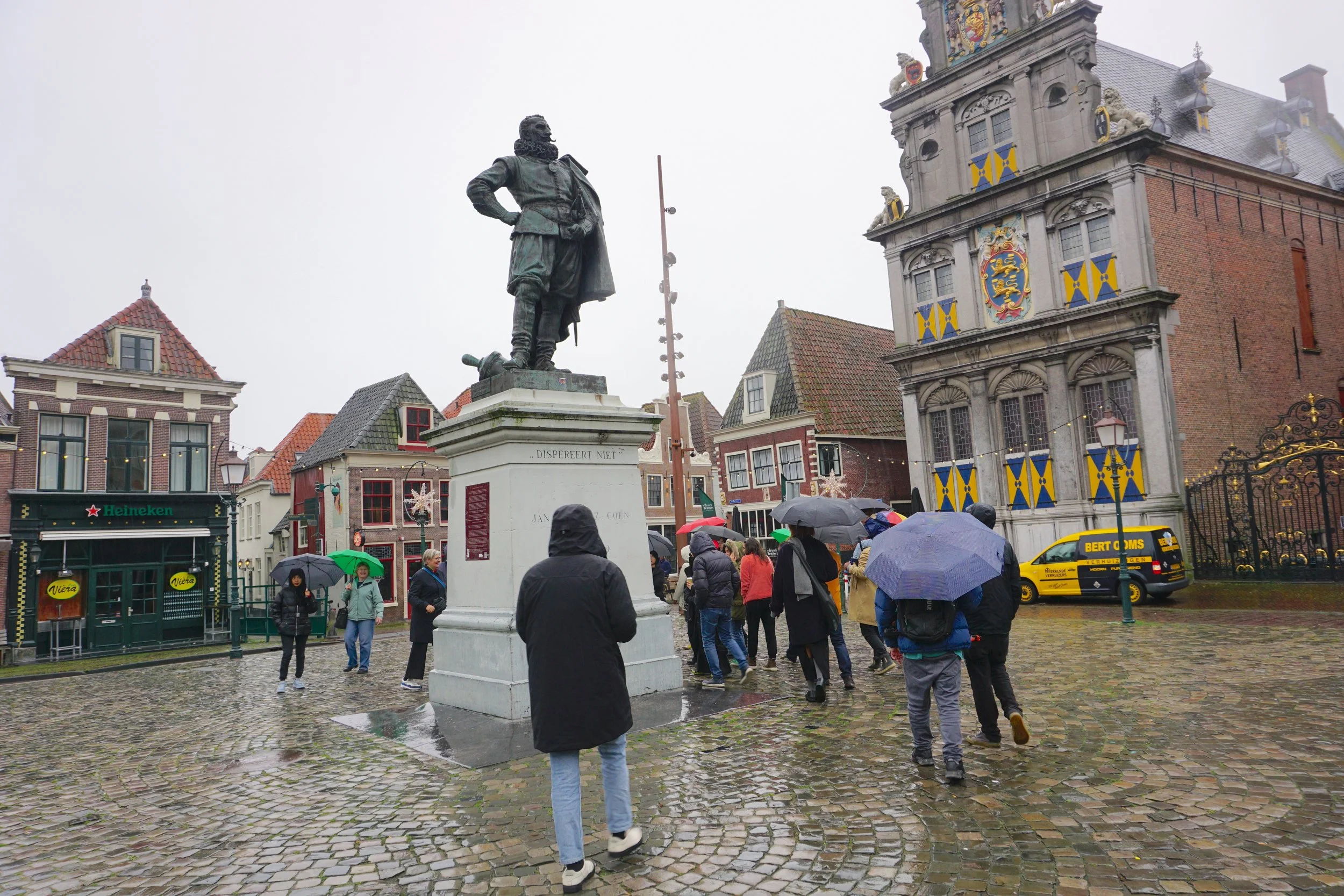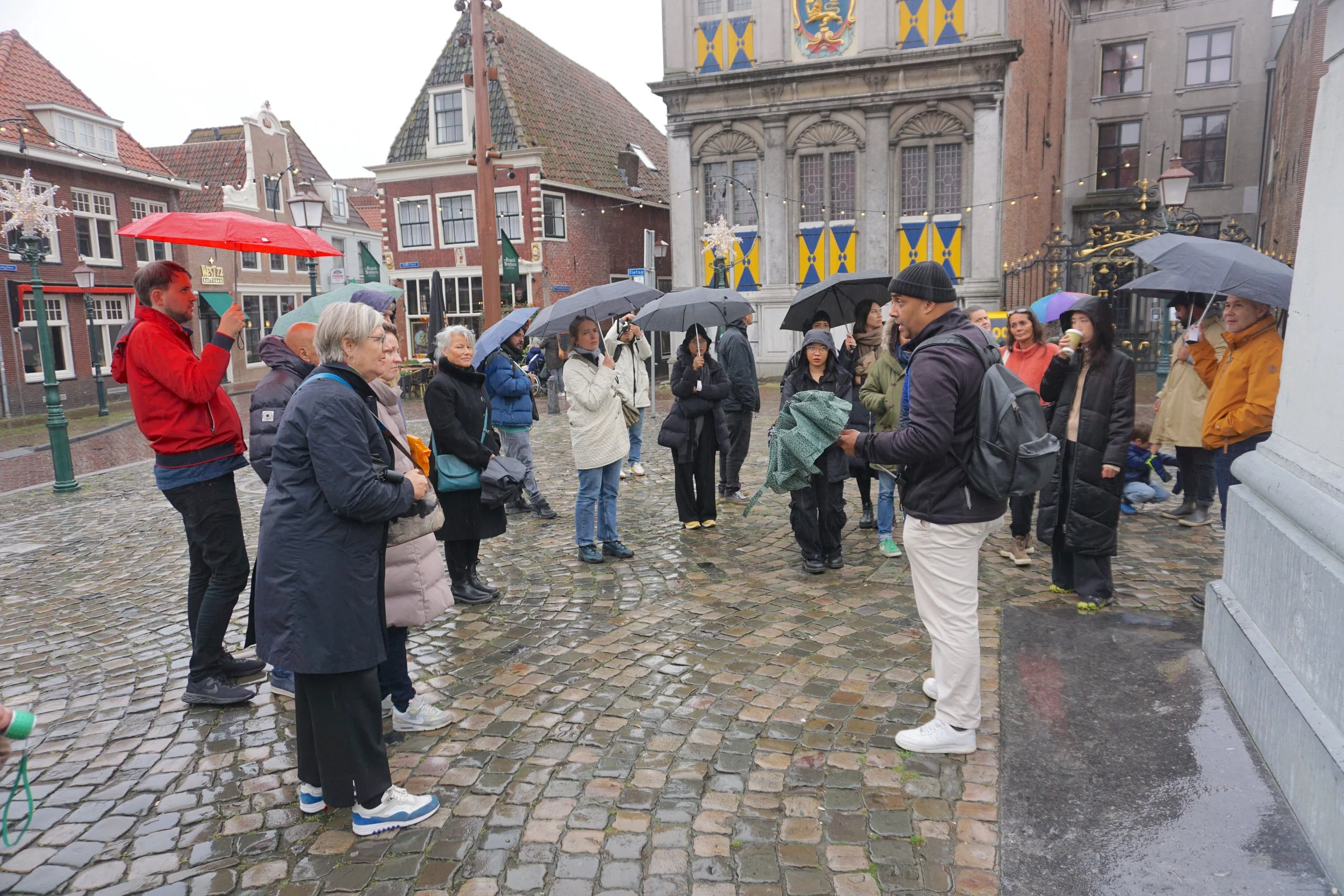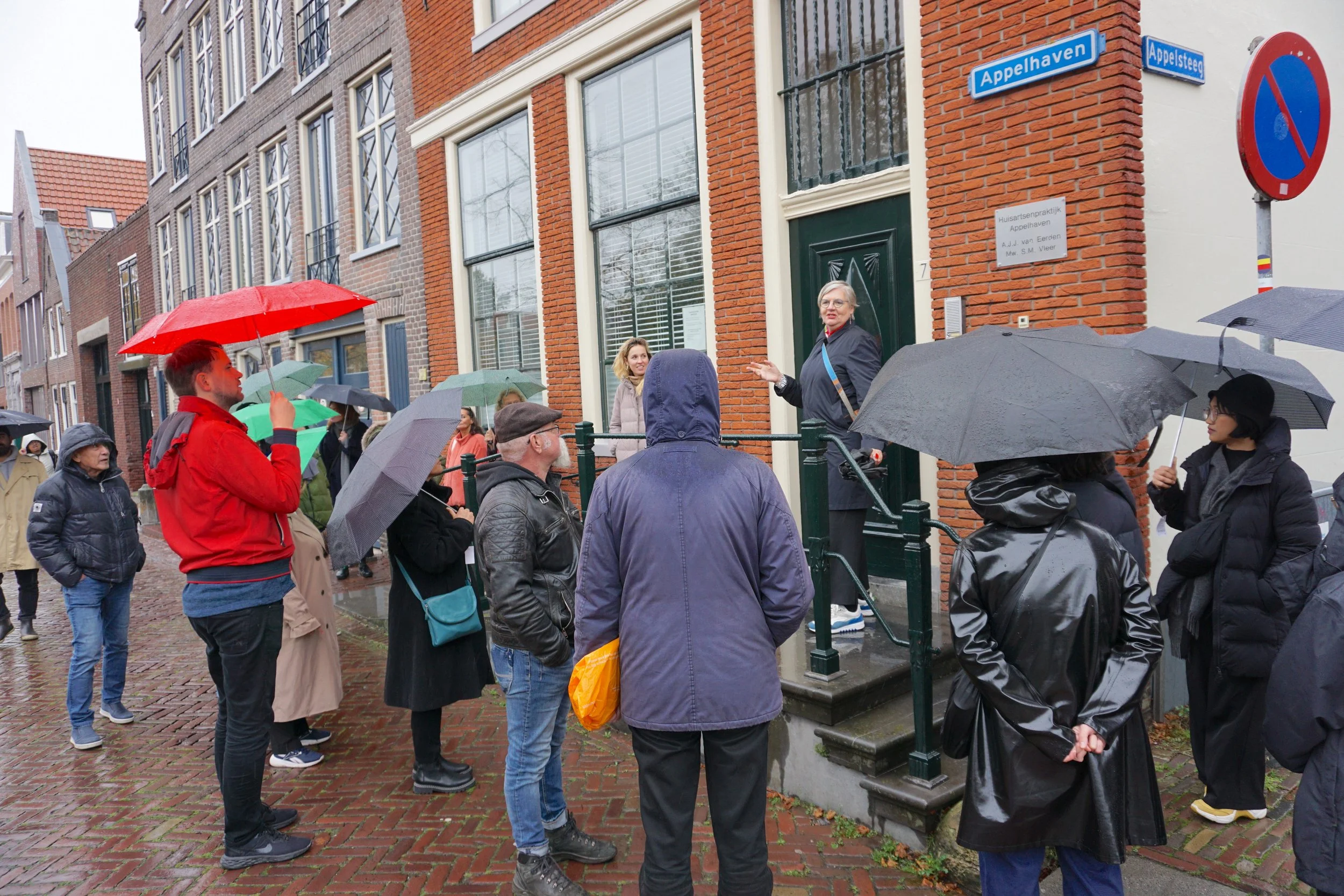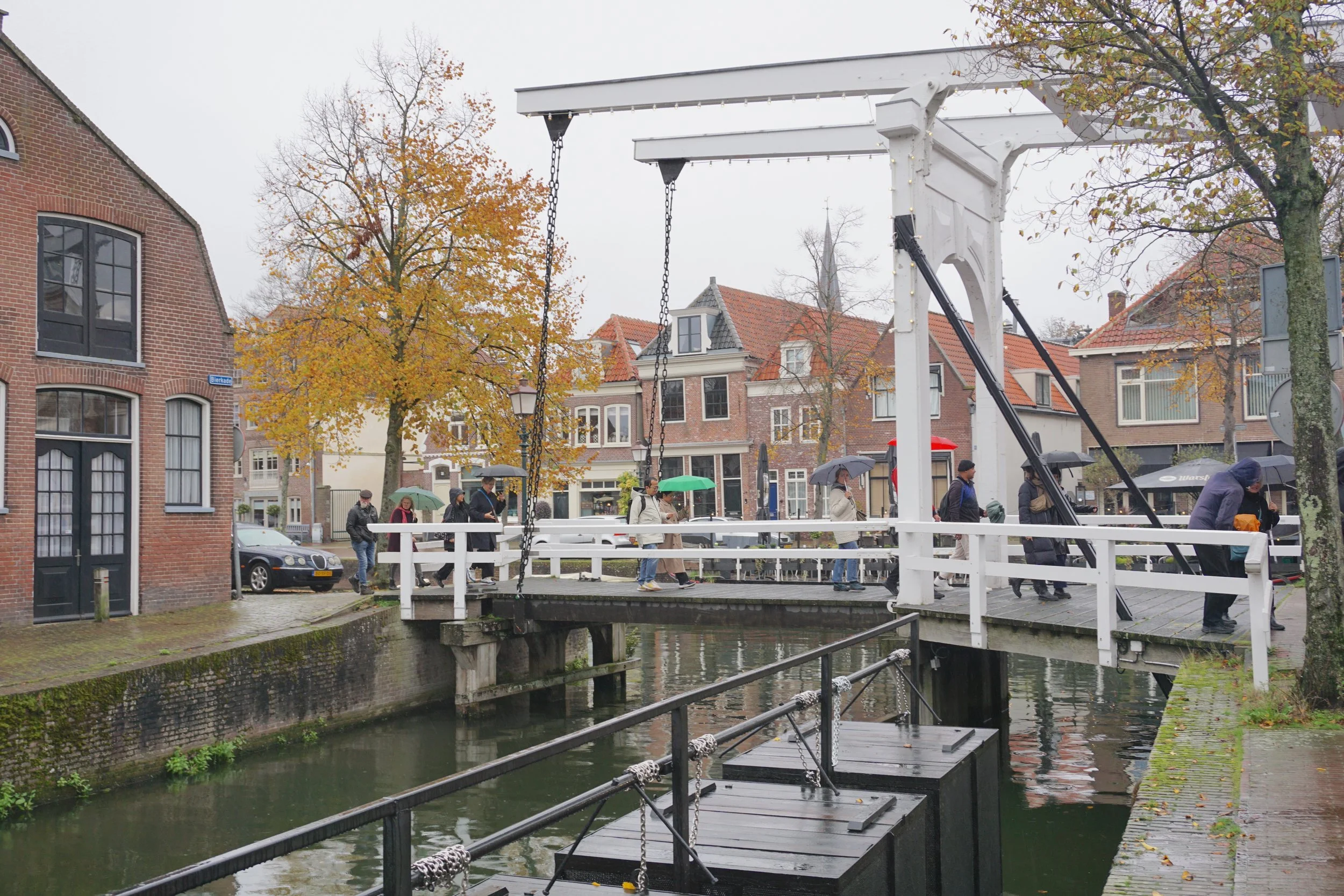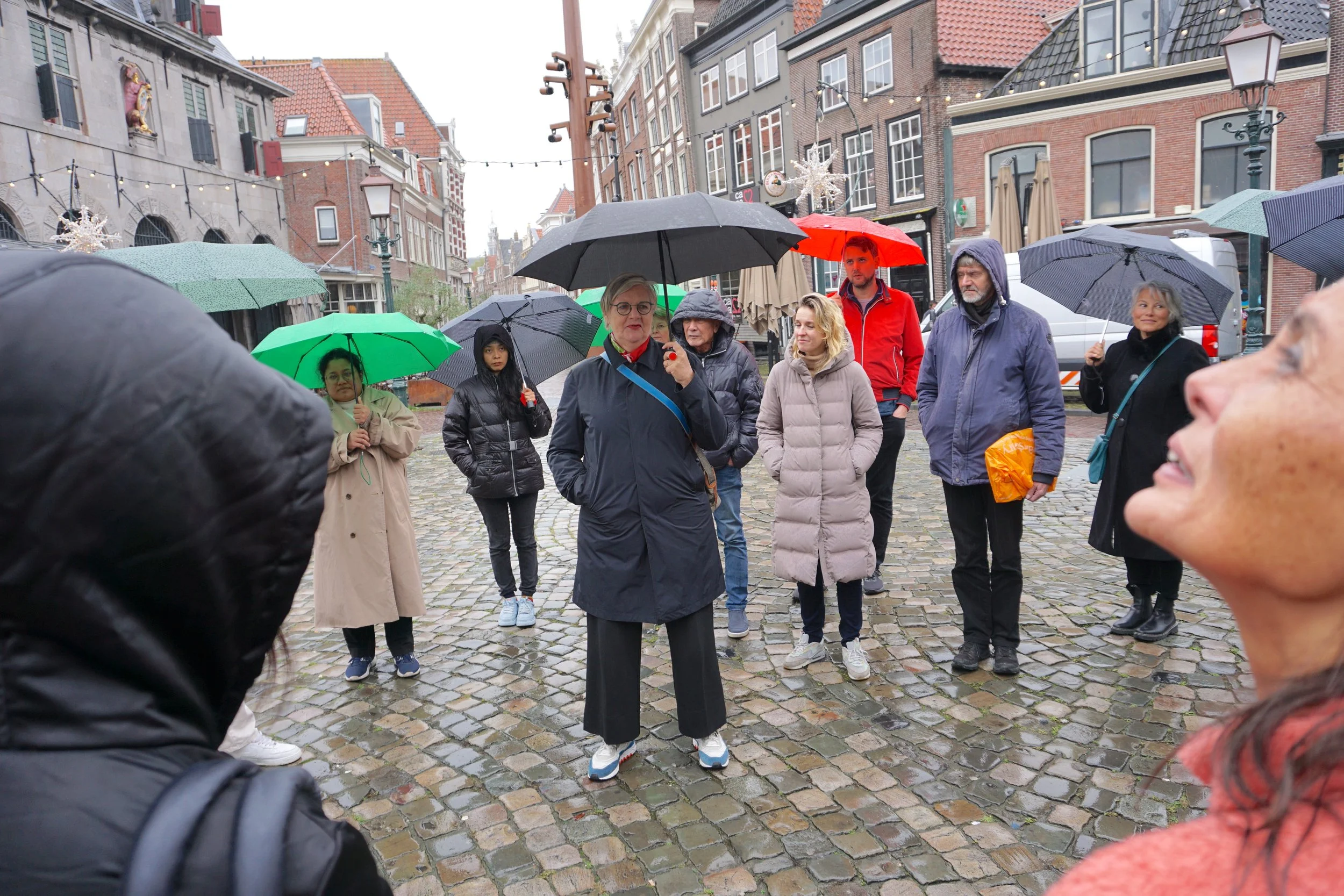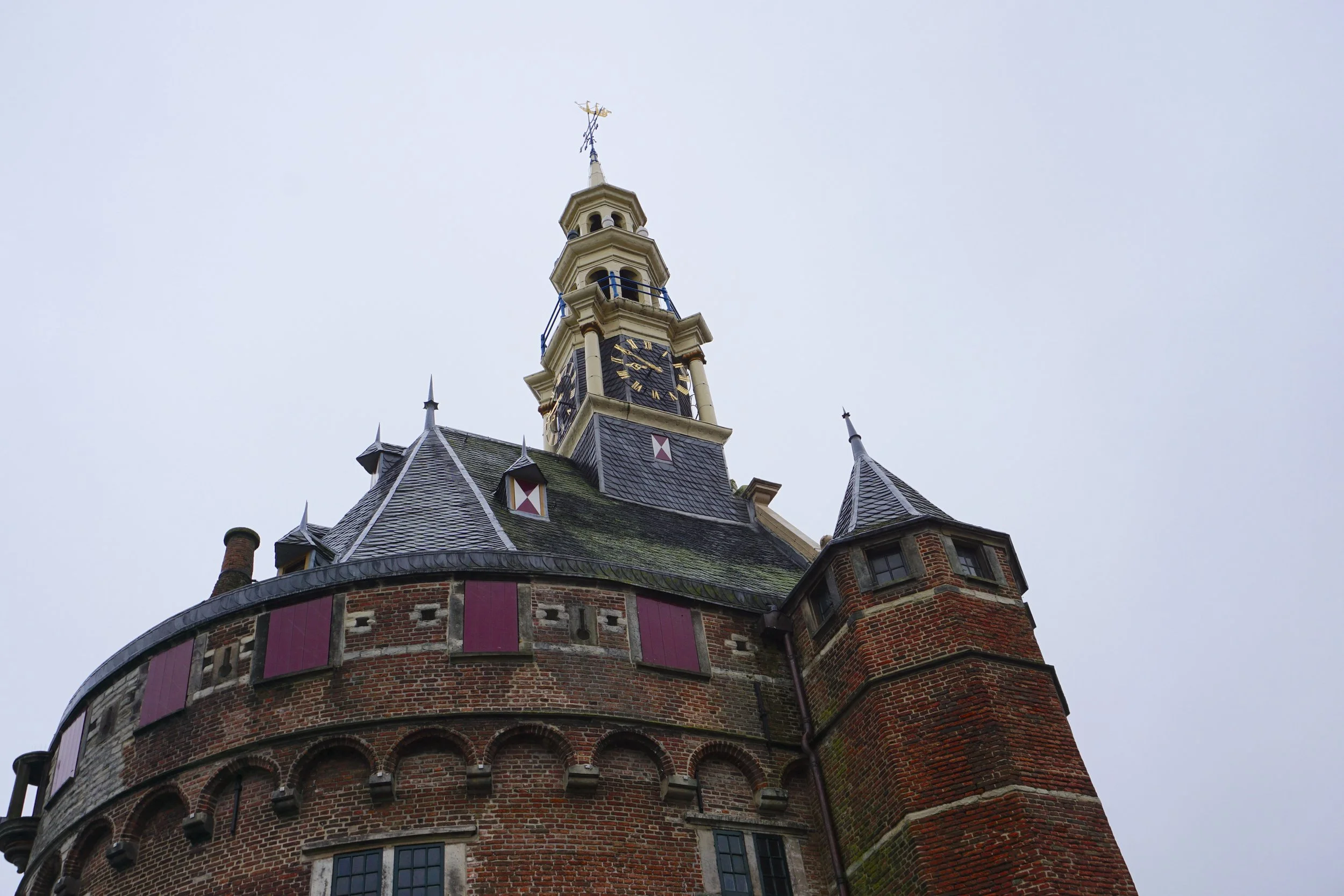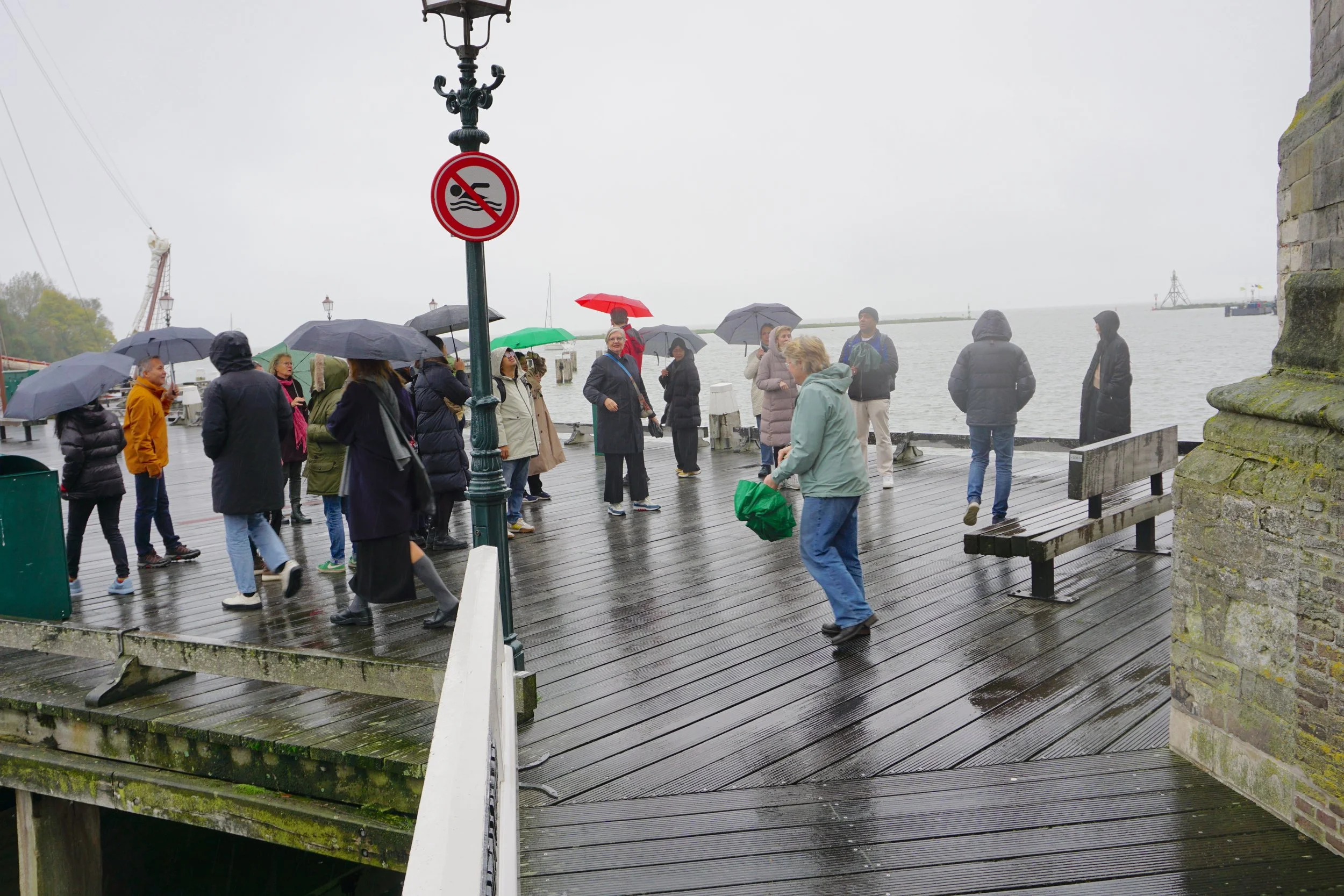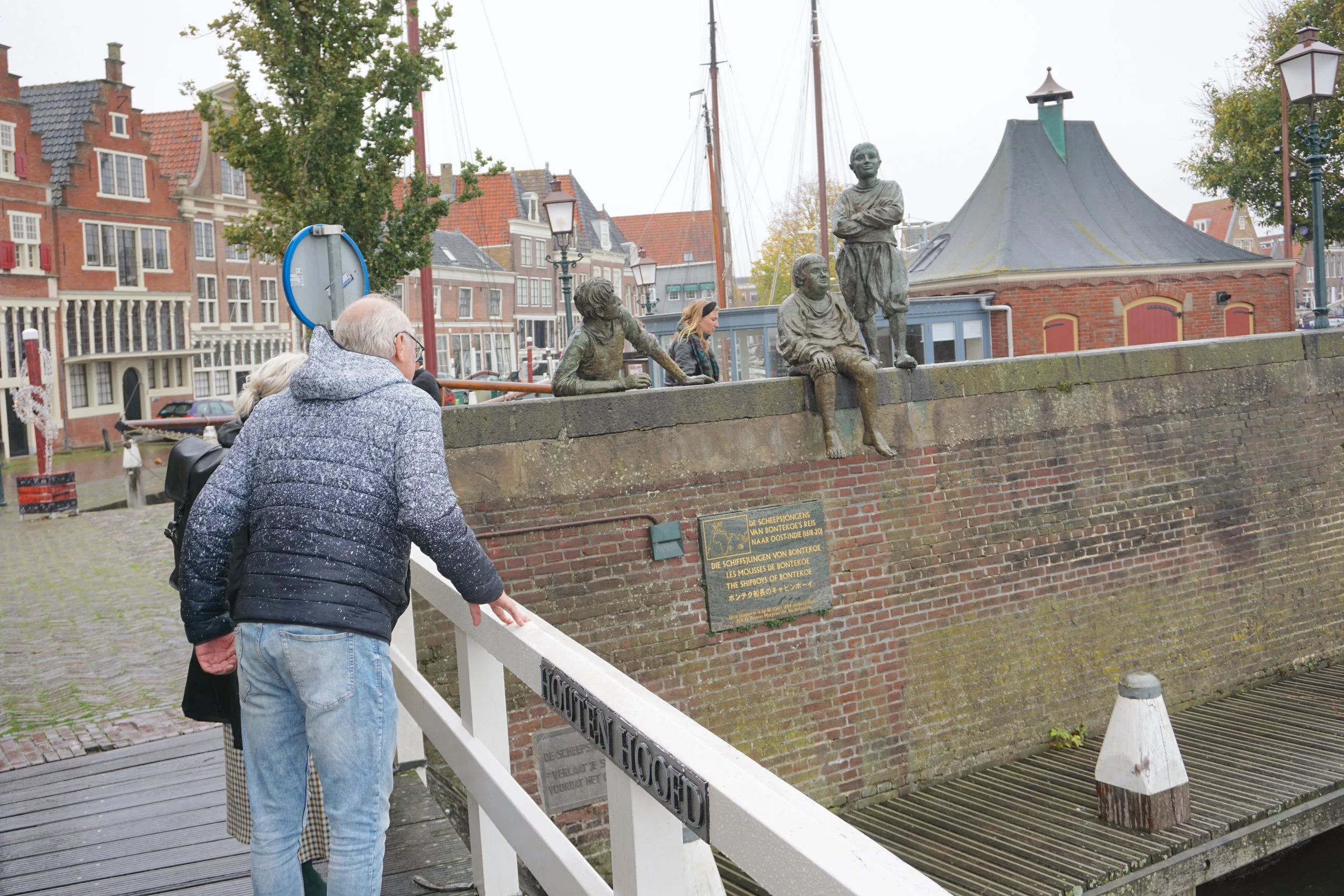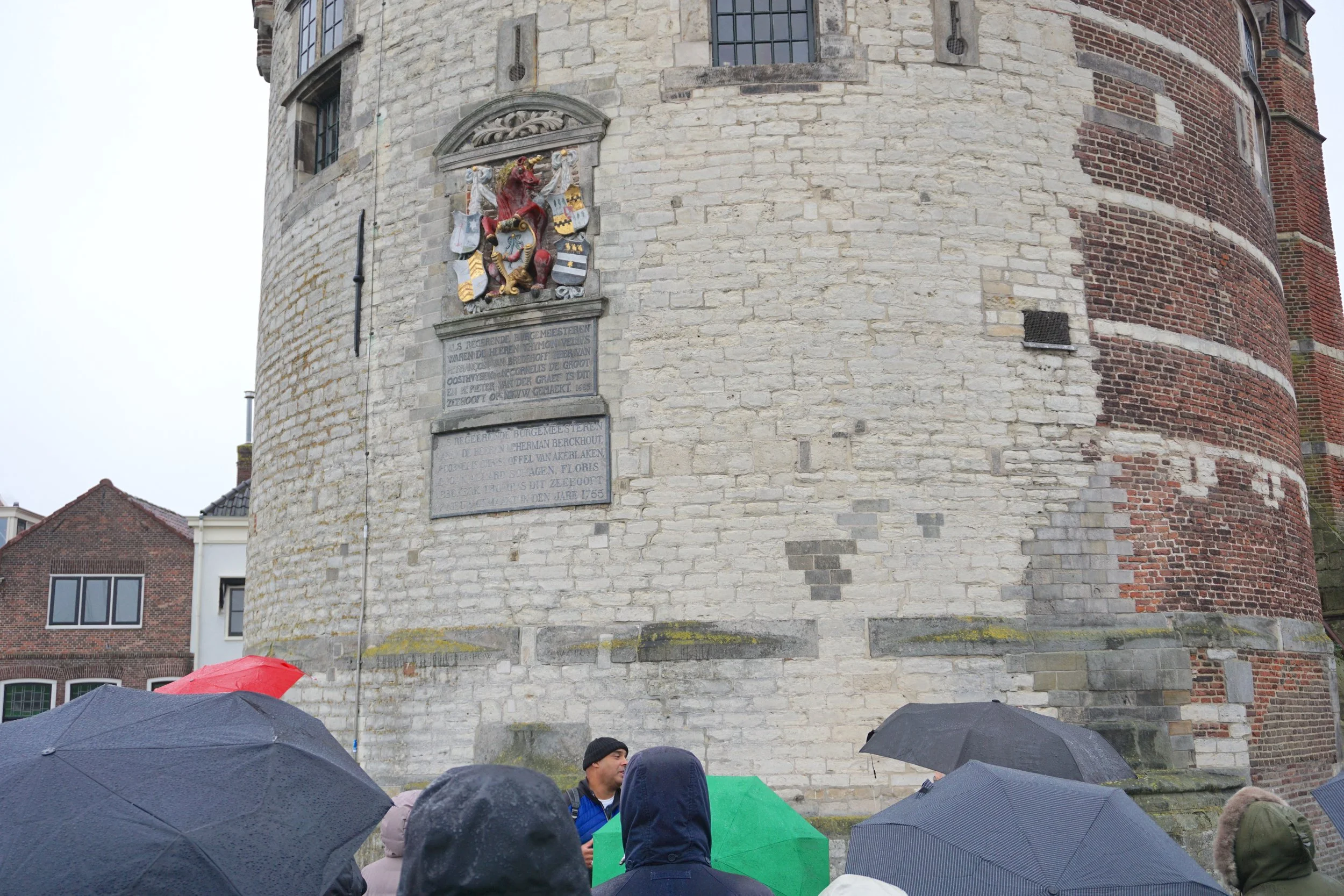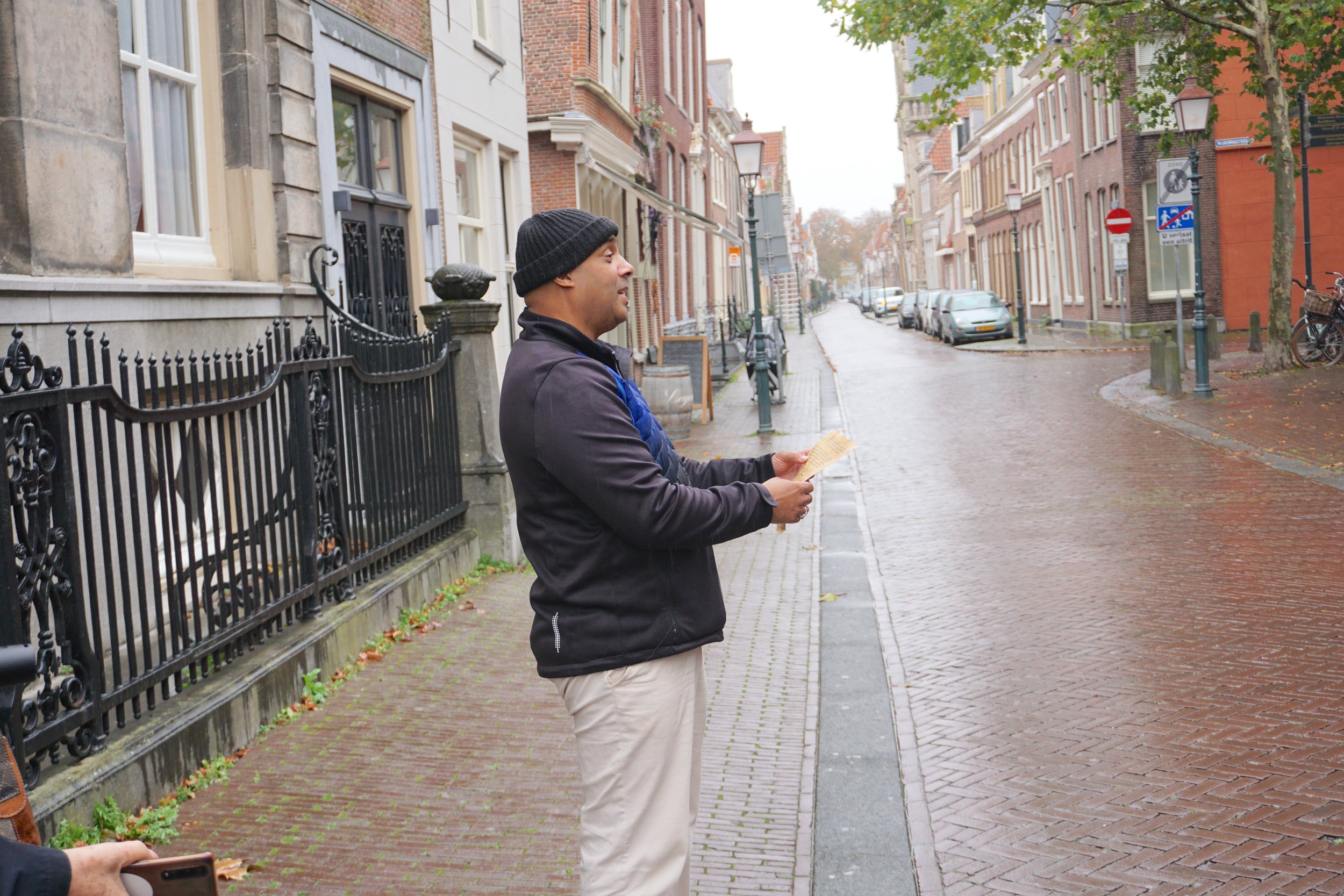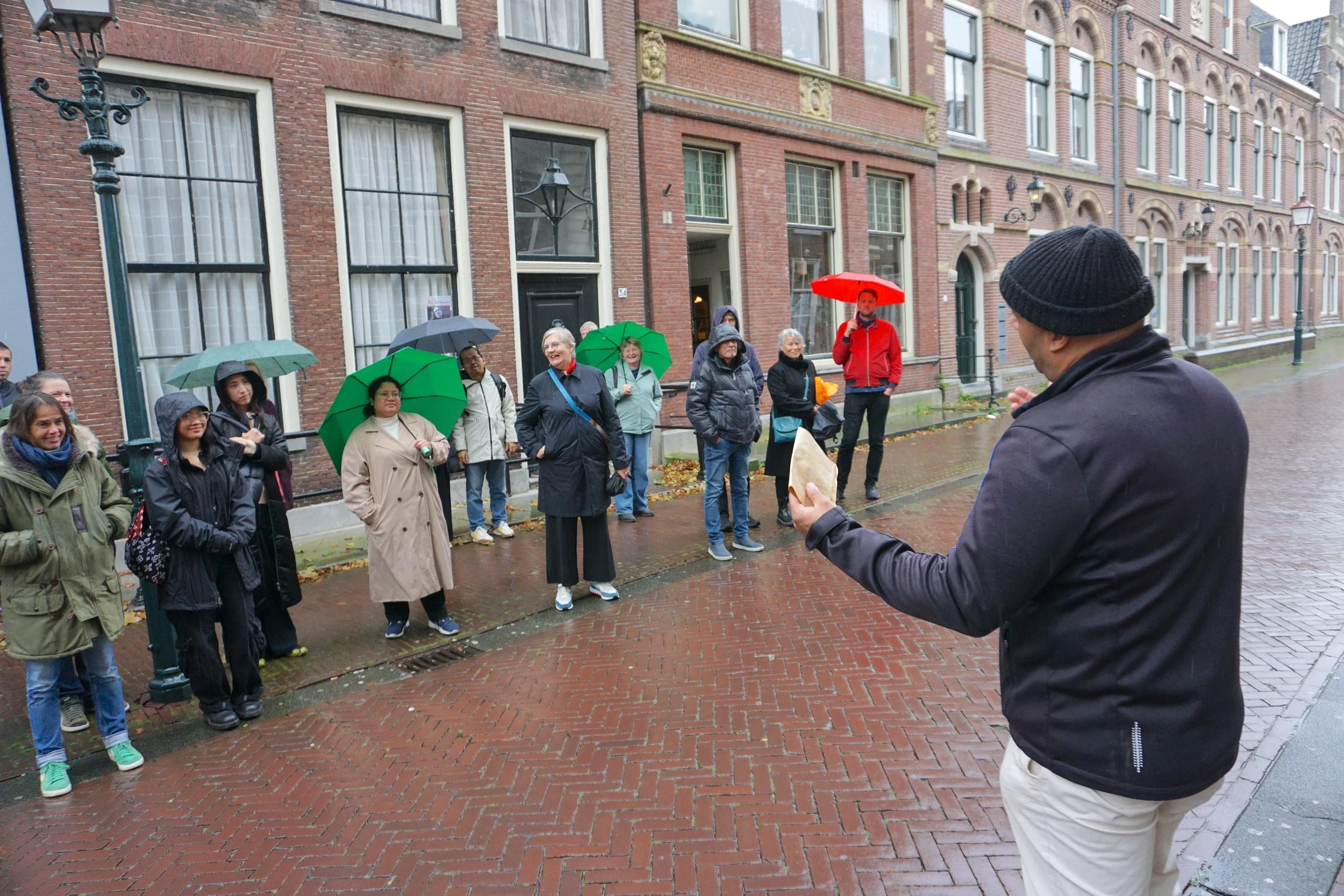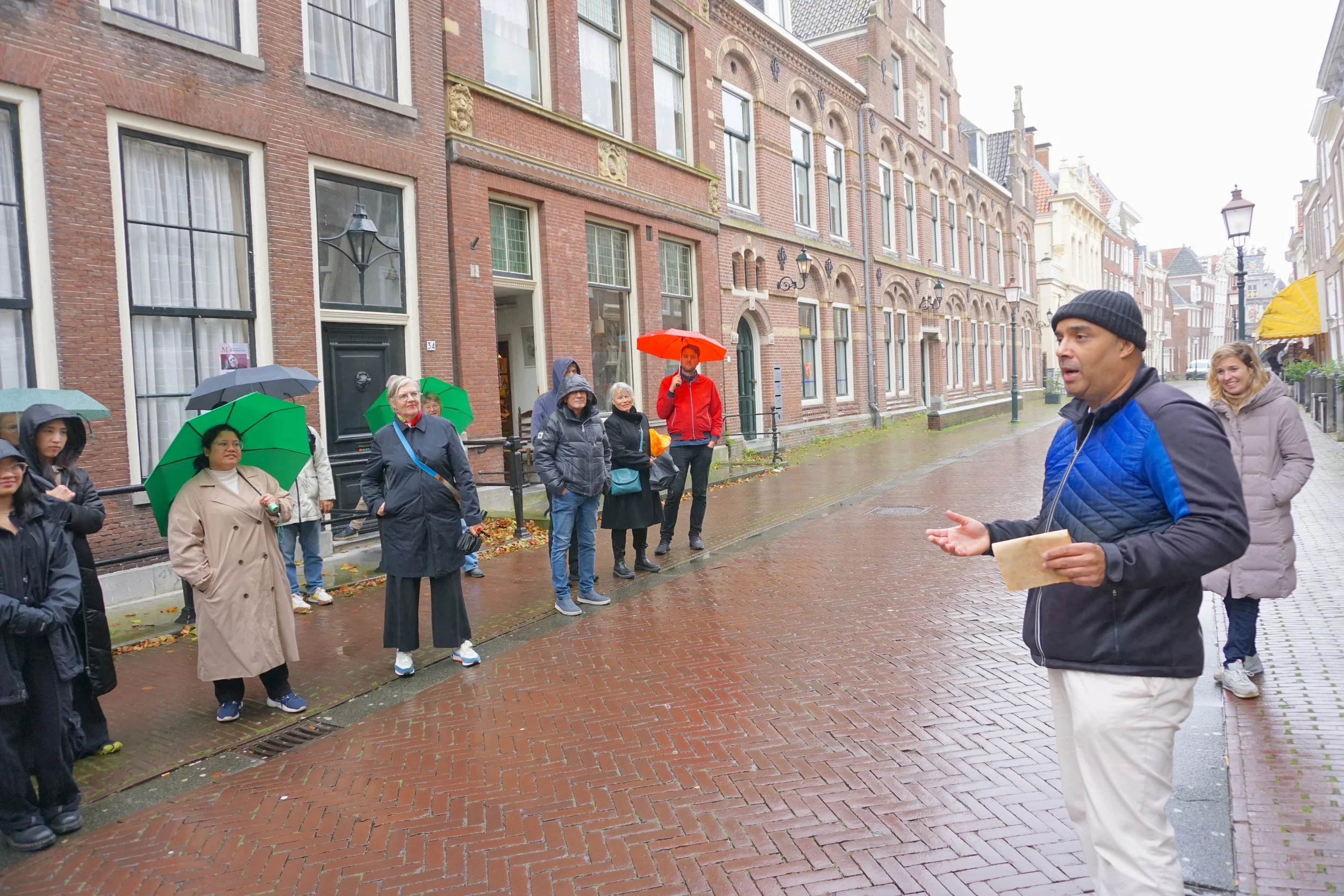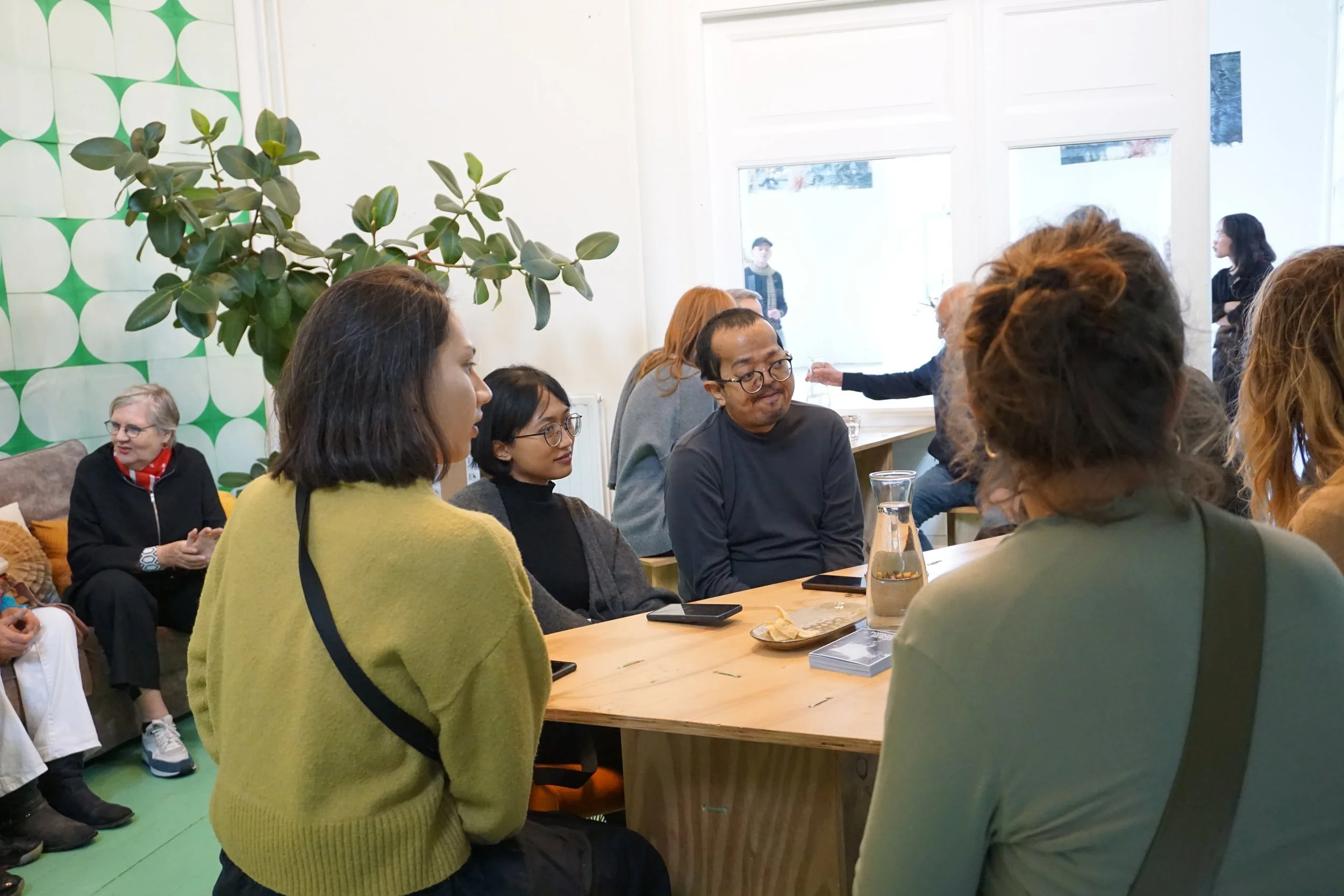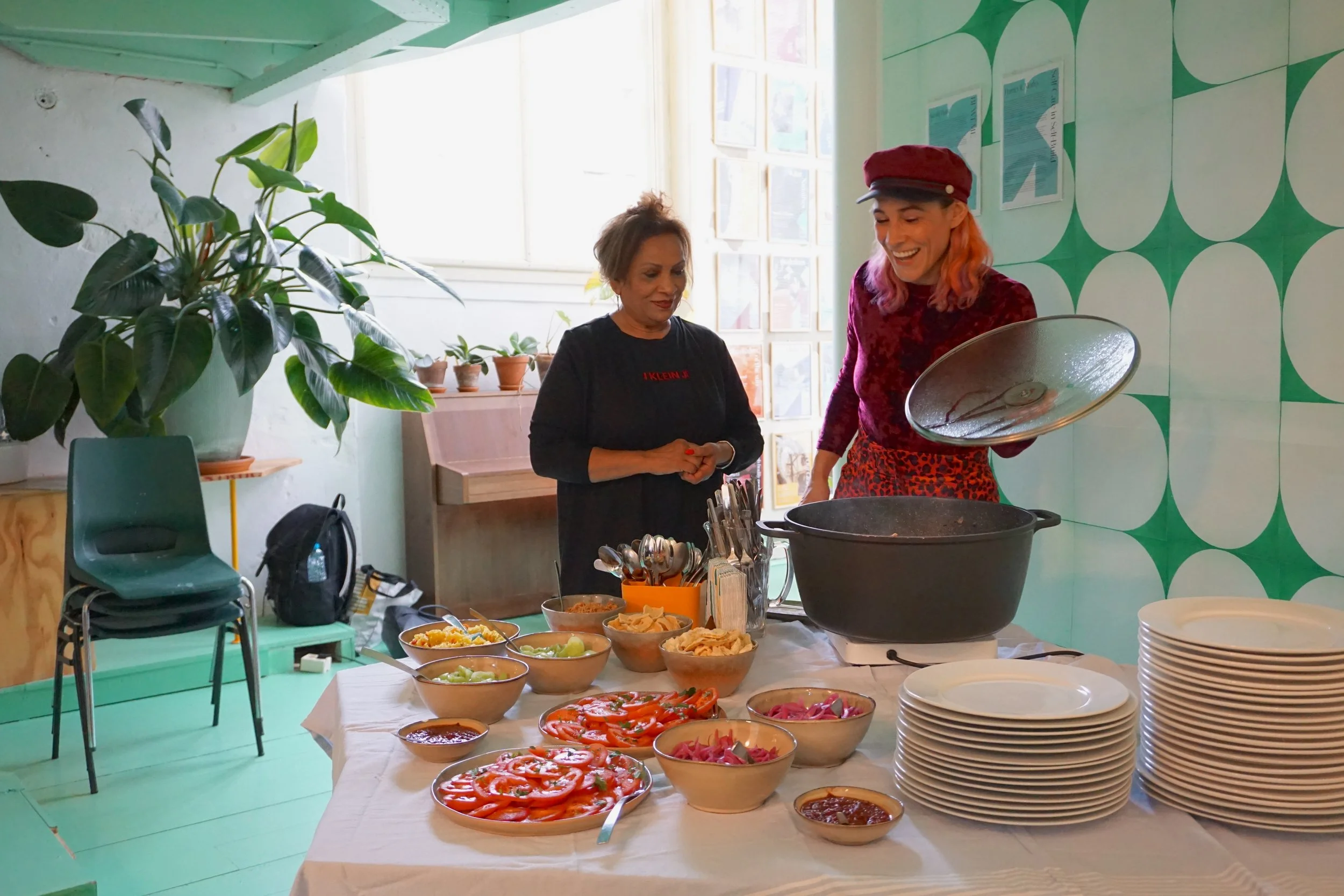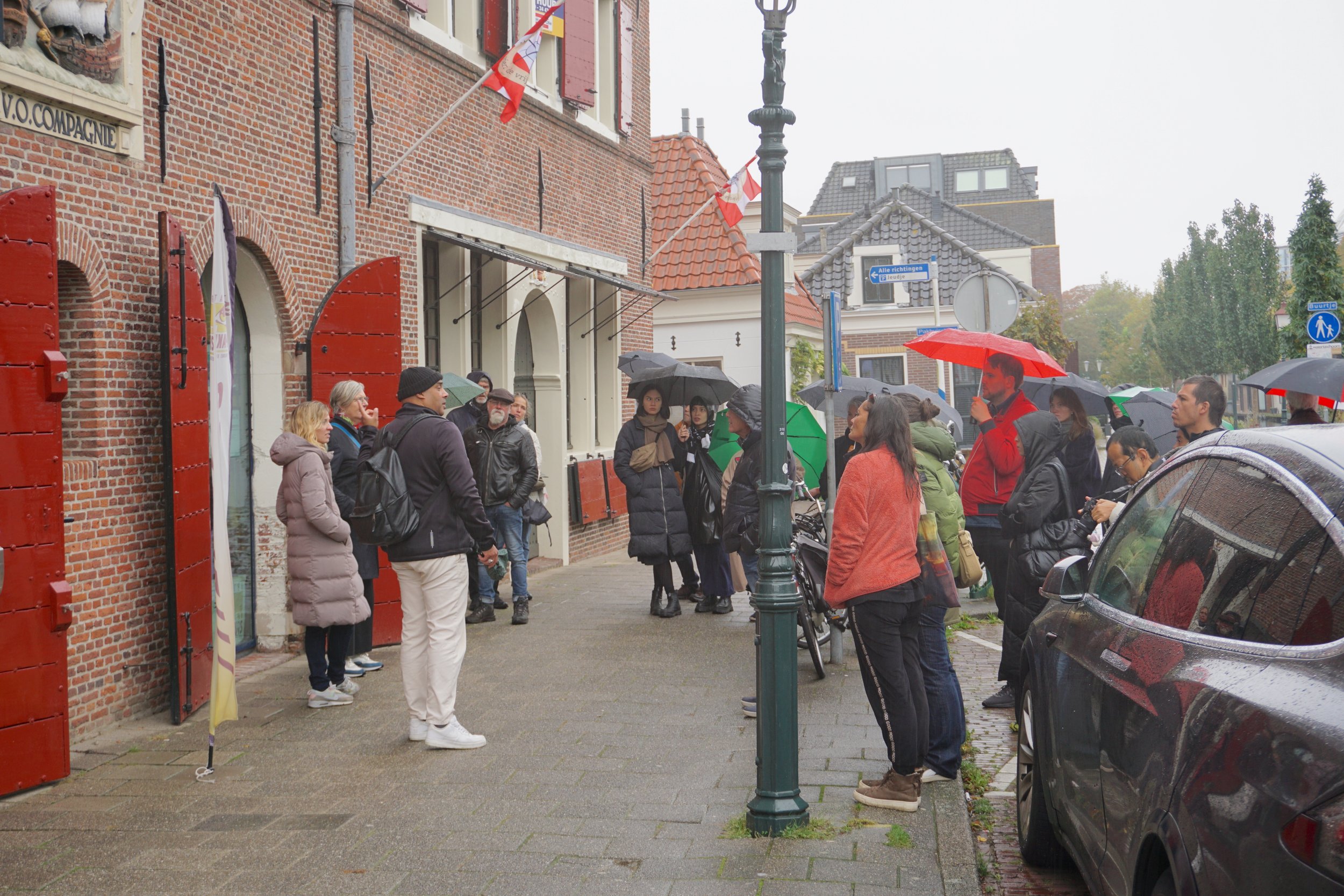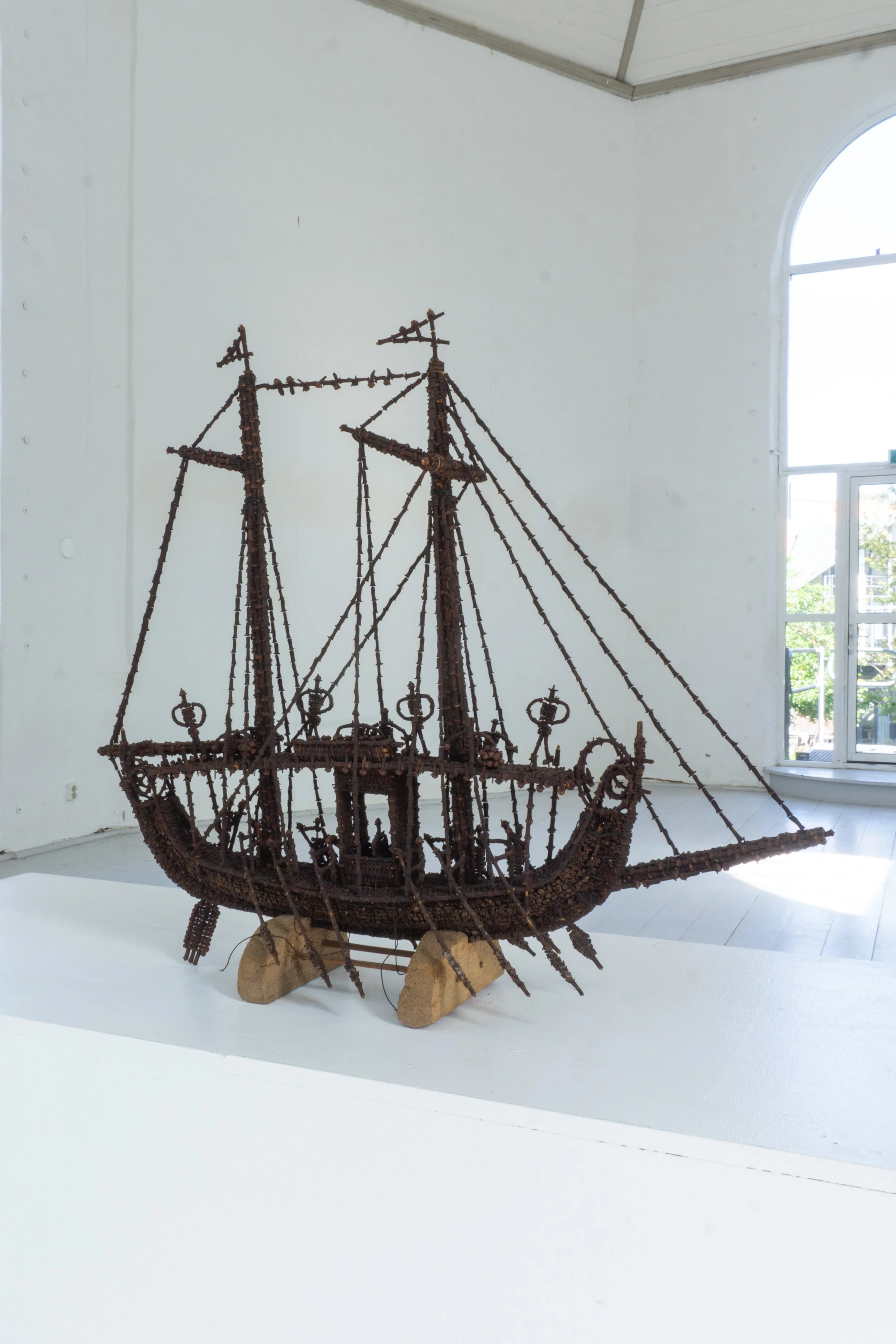Your Gold is not Our Glory
Mira Asriningtyas & Dito Yuwono
with work by Jompet Kuswidananto, Ipeh Nur, Mella Jaarsma and Westfries Museum
· long-term residency: February - October 2023
· meet and greet: 29 September, 16:00
· opening: 6 October, 15:00 - 19:00
· exhibition on view: 6-27 October
· walking tour w/ Mella Jaarsma: 27 October, 13:00 (reservations)
During their long term residency at Hotel Maria Kapel, curator Mira Asriningtyas and artist Dito Yuwono respectively developed an exhibition and a new work that critically reflects on the history of Hoorn from a decolonial Indonesian perspective. Public programs consisting of a discussion and a walking tour will be conducted at the beginning and the end of the exhibition. Over the course of approximately half a year they have been researching the city’s so-called ‘Golden Age’ - a time of unprecedented prosperity in the 17th century, when the East India Company (VOC) was founded and inhabitants such as J.P. Coen travelled the world for trade and colonisation. But to whose expense? In recent years our view on historiography has become more nuanced and inclusive: how do we renegotiate the darker sides of history with one that is more transparent? The exhibition Your Gold is not Our Glory invites us to contemplate those questions.
Dito Yuwono, Yang Kelak Akan Retak, 2023 (film stills)
The exhibition brings together new work by Dito Yuwono alongside works by Ipeh Nur, Jompet Kuswidananto, Mella Jaarsma, and a piece for the collection of the Westfries Museum. Together, it investigates some crucial turning points in Indonesian history; from the Banda massacre in 1621, the implementation of the Cultuurstelsel in the 19th-century, and the military aggression at tip end of the Dutch colonial rule in 1945 - 1949.
At the end of the exhibition, Mella Jaarsma will take the audience for a walking tour along multiple places in Hoorn, discussing sights, findings, and shared histories from different perspectives as the city becomes a site where political narratives reside and where transfer of values are being made and continuously contested.
In 2011, the duo founded LIR Space in Yogyakarta, Indonesia, with the aim of creating a supportive and positive environment for research into decolonising (spatial) histories - more specifically how cities, as manifestations of collective memory and stories, can be renegotiated to represent more inclusive histories. In 2019, LIR changed into a specialised nomadic curator collective, with HMK as their most recent temporary residence and the specific context of Hoorn as their research topic. The research and exhibition Your Gold Is Not Our Glory has gotten its shape through exchange within the study platform Centre for Historical Alternative-Narrative and Traces (CHANT), also initiated and led by LIR.
Mira Asriningtyas works as an independent curator and writer. She completed the Curatorial Program in 2017 at De Appel Art Center in Amsterdam. The idea of learning back from polycentric knowledge rooted in local context as an attempt to decolonize the knowledge system, promote ecological sustainability, and further investigate the remaining trace of colonialism have been central to her current research practice. She has curated exhibition and public programs off-sites and in art institutions such as De Appel Art Center (Amsterdam); Stedelijk Museum (Amsterdam); Fondazione Sandretto Re Rebaudengo (Turin); KKF (Yogyakarta); ISCP (New York); MAIIAM Contemporary Art Museum (Chiang Mai); Our Museum (Taipei) among others. Her essays have been published internationally in books, exhibition catalogues, monographs, journals, and online publications including PARSE Journal, Stedelijk Studies, Ocula, and ArtReview Asia among others. In 2017, she initiated a biennale site-specific art project, “900mdpl” in Kaliurang– a historical resort village under Mount Merapi Volcano in Yogyakarta.
Dito Yuwono is an artist and curator focusing on the notion of collectivity, personal history as part of major historical narrative, and collective memory of a place. He uses a form of storytelling using a personal approach to subtly grasp the bigger picture of the socio-political environment, and his work often addresses social issues through the production of site-specific work, interventional project, video, photography, and audio-visual Installation. In the past five years, Dito did numerous residencies as part of his site-specific artistic practice at institutions such as The NCCA– Australia; Ruangrupa– Jakarta; Jatiwangi Art Factory– Indonesia; GOLEB & Het Wilde Weten– The Netherlands; TIFA Working Studios– India; and Collectif BONUS-Nantes. His work has been exhibited in Herbert F. Johnson Museum of Art– United States, Jimei X Arles International Photo Festival 2017, JIPFEST 2022, among others; and solo exhibitions in KKF, Ruang MES56, ruangrupa Gallery, and Cemeti Institute for Art and Society– Indonesia. He is currently one of the co-directors of Ruang MES56 and the curator of the international Jogja Fotografis Festival 2023 titled “Mengukur Panjang dan Lebar Sebuah Bingkai” (A Strategy to Measure a Frame) in Indonesia.
Ipeh Nur was born in Yogyakarta and graduated from the Indonesian Institute of the Arts – ISI in Yogyakarta with a master's degree in graphic arts. Her work is inspired by everyday problems and by her personal experiences. Nur participated in several exhibitions, including Beyond Masculinity (2016) at the Ark Gallery, The Beresyit! (2016) in Krack! Studio in Yogyakarta, Women, Art & Politics (2016) at Footscray Community Arts Center – FCAC in Australia, WOW Fest in Melbourne, Australia (2017), Pentagonal Icositetrahedron (2017) at Cemeti Institute for Art and Society in Yogyakarta, Pressing Matters (2018) and On the Nature of Botanical Gardens (2020) both at Framer Framed in Amsterdam and Kebun Sejarah (Garden of History) (2021) at Zone2Source in Amsterdam.
Mella Jaarsma has become known for her complex costume installations and her focus on forms of cultural and racial diversity embedded within clothing, the body and food. She was born in the Netherlands and studied visual art at Minerva Academy in Groningen, after which she left the Netherlands to study at the Art Institute of Jakarta and at the Indonesian Institute of the Arts in Yogyakarta. She has lived and worked in Indonesia ever since. Mella Jaarsma’s works have been presented widely in exhibitions and art events in Indonesia and abroad, including: the 20th Sydney Biennale (2016); ‘The Roving Eye’, Arter, Istanbul (2014); ‘Siasat – Jakarta Biennale’, Museum of Ceramics and Fine Arts, Jakarta (2013); ‘Suspended Histories’, Museum Van Loon, Amsterdam (2013); ‘Singapore Biennale’, Singapore Art Museum (2011); ‘GSK Contemporary – Aware: Art Fashion Identity’, the Royal Academy of Arts, London(2010); ‘RE-Addressing Identities’, Katonah Museum, New York (2009); ‘Accidentally Fashion’, Museum of Contemporary Art, Taipei (2007); Yokohama Triennial (2005), and many others.
Jompet Kuswidananto started as a musician and produced records and performances while studying communications science at Gadjah Mada University in Yogyakarta. The eclectically trained, polyvalent artist, who lives and works in Yogyakarta, remains profoundly attached to Indonesia and rendering its turbulent history. In his visual art, he has used his knowledge in traditional shadow theatre and other forms of performing arts to develop a personal style of multimedia specialisation. This spatialisation aims to provide both aesthetic pleasure and accounts of the changing identities that have shaped and indeed continue to shape individuals and communities’ fate in Indonesia and beyond. His works have been presented widely in exhibitions and art events in Indonesia and abroad, including: “Sharjah Biennial 14”, Saudi Arabia (2019); “Sunshower”, Mori Art Museum, Japan (2017); “Ural Industrial Biennale”, Rusia (2015); “Taiwan Asian Art Biennale”, Taiwan (2015); “Taipei Biennale”, Taiwan (2012); “Moscow Biennale”, Rusia (2012), and many others.
The Westfries Museum is a regional history museum that tells the cultural history of Hoorn and West Friesland, with a specific focus on the 17th century and Hoorn's VOC past. Besides the permanent collection, there are changing exhibitions that shed new light on history and provide different socio-cultural perspectives. Due to a large-scale renovation of the building - the 1632 dating former Statencollege at the Rode Steen in Hoorn's city centre - the museum is currently closed and the extensive collection of paintings, furniture, porcelain, militia pieces and historical artefacts is currently not on public display. However, there are several activities online and in the city that continue to tell the story of Hoorn. The museum expects to reopen in 2024. www.westfriesmuseum.nl
This project is made possible with help of Mondriaan Fonds, Gemeente Hoorn and Prins Bernhard Cultuurfonds.


